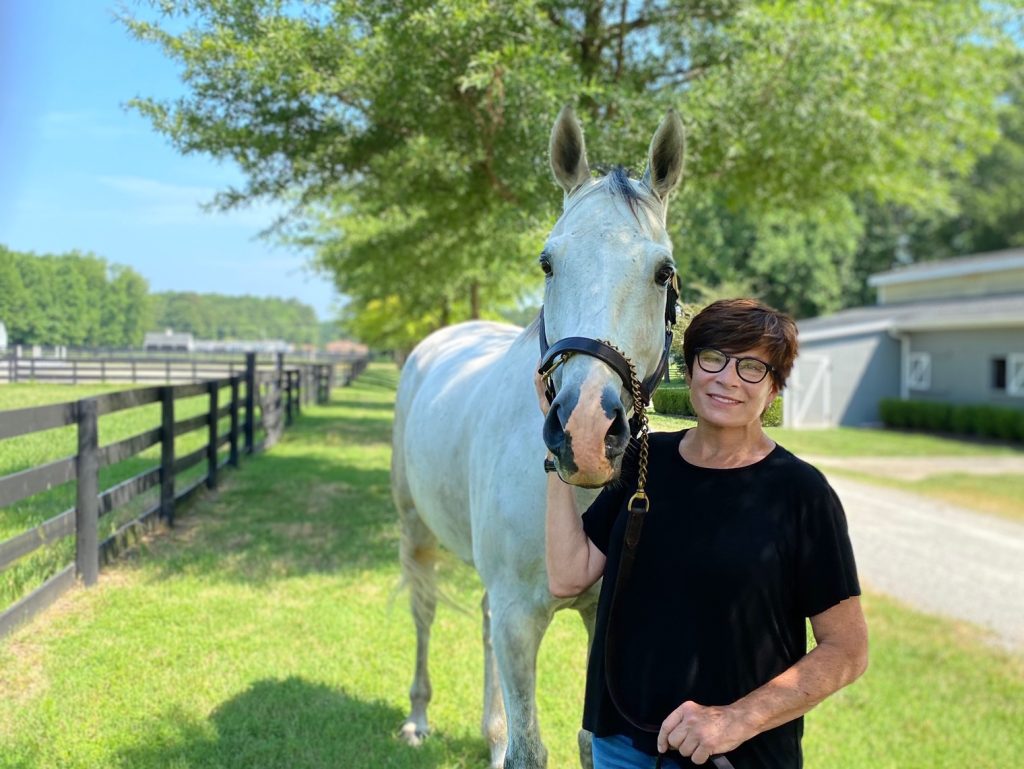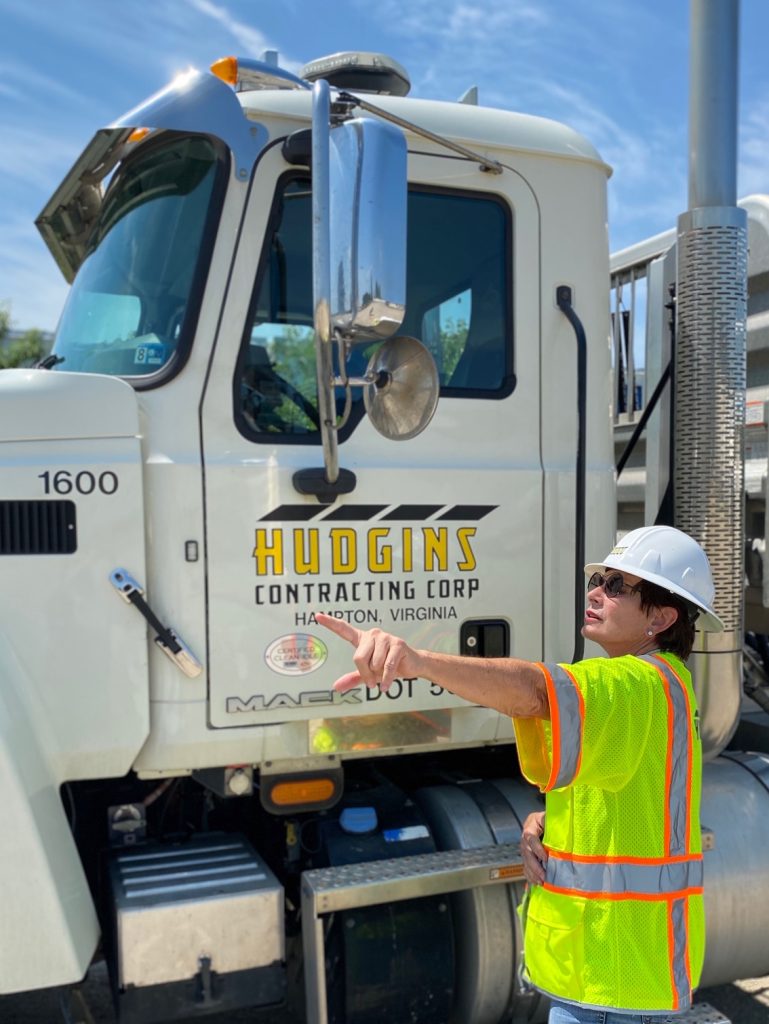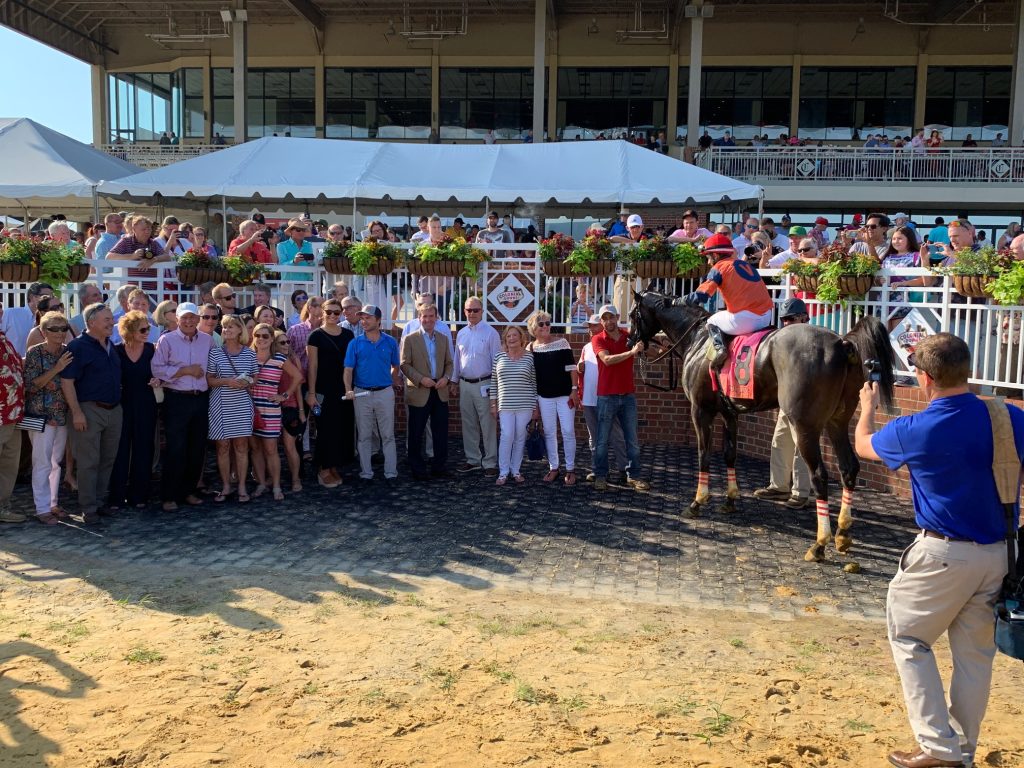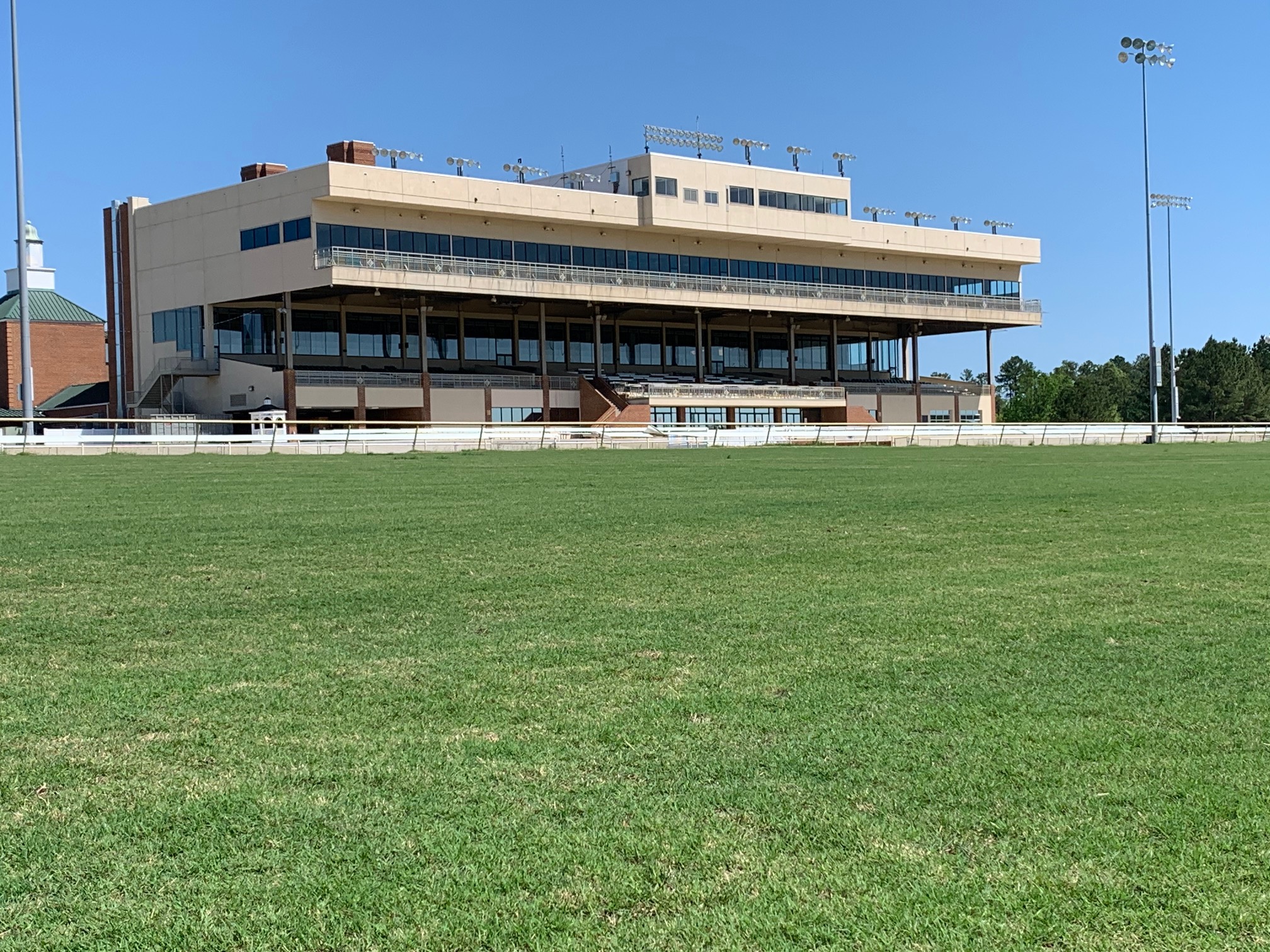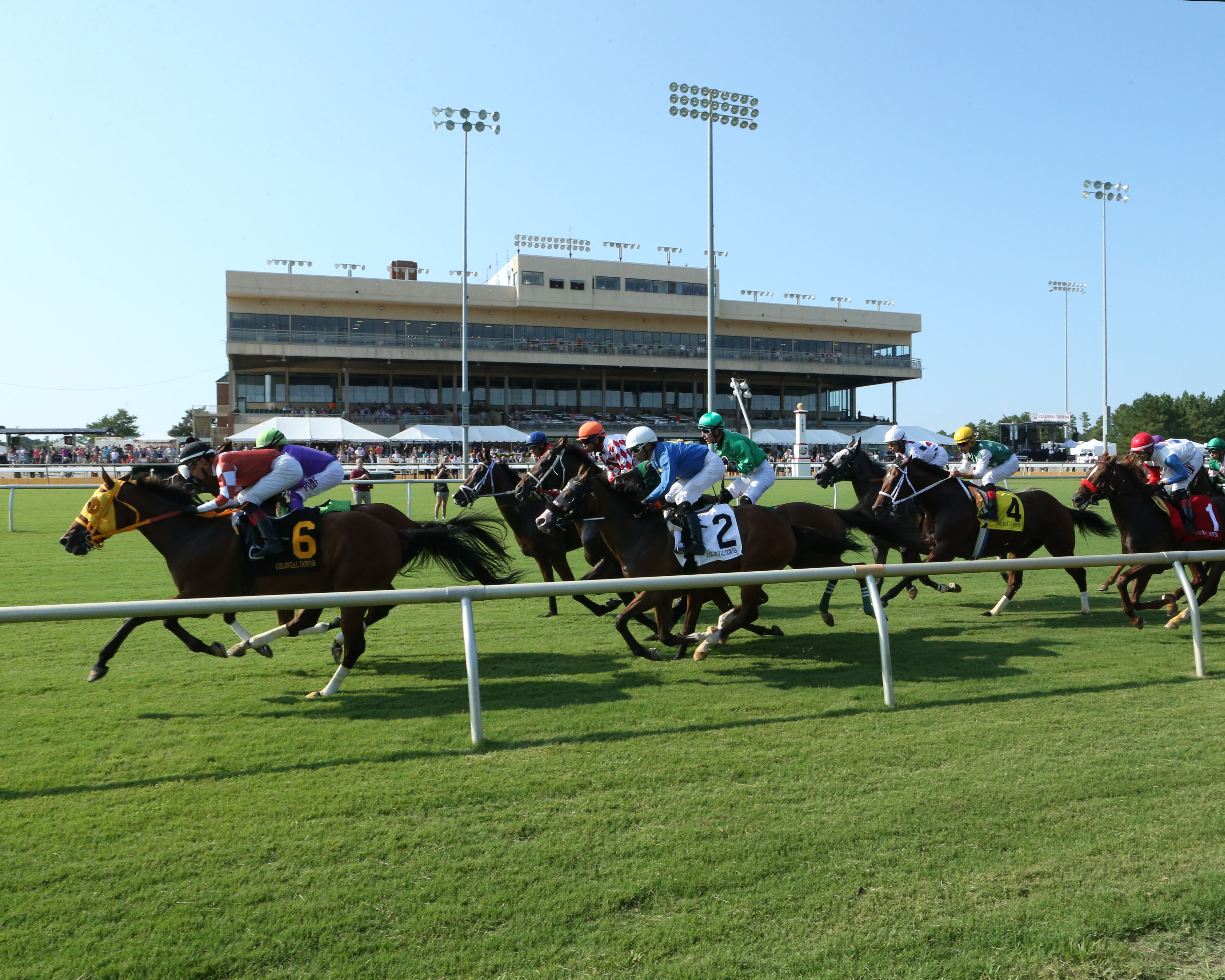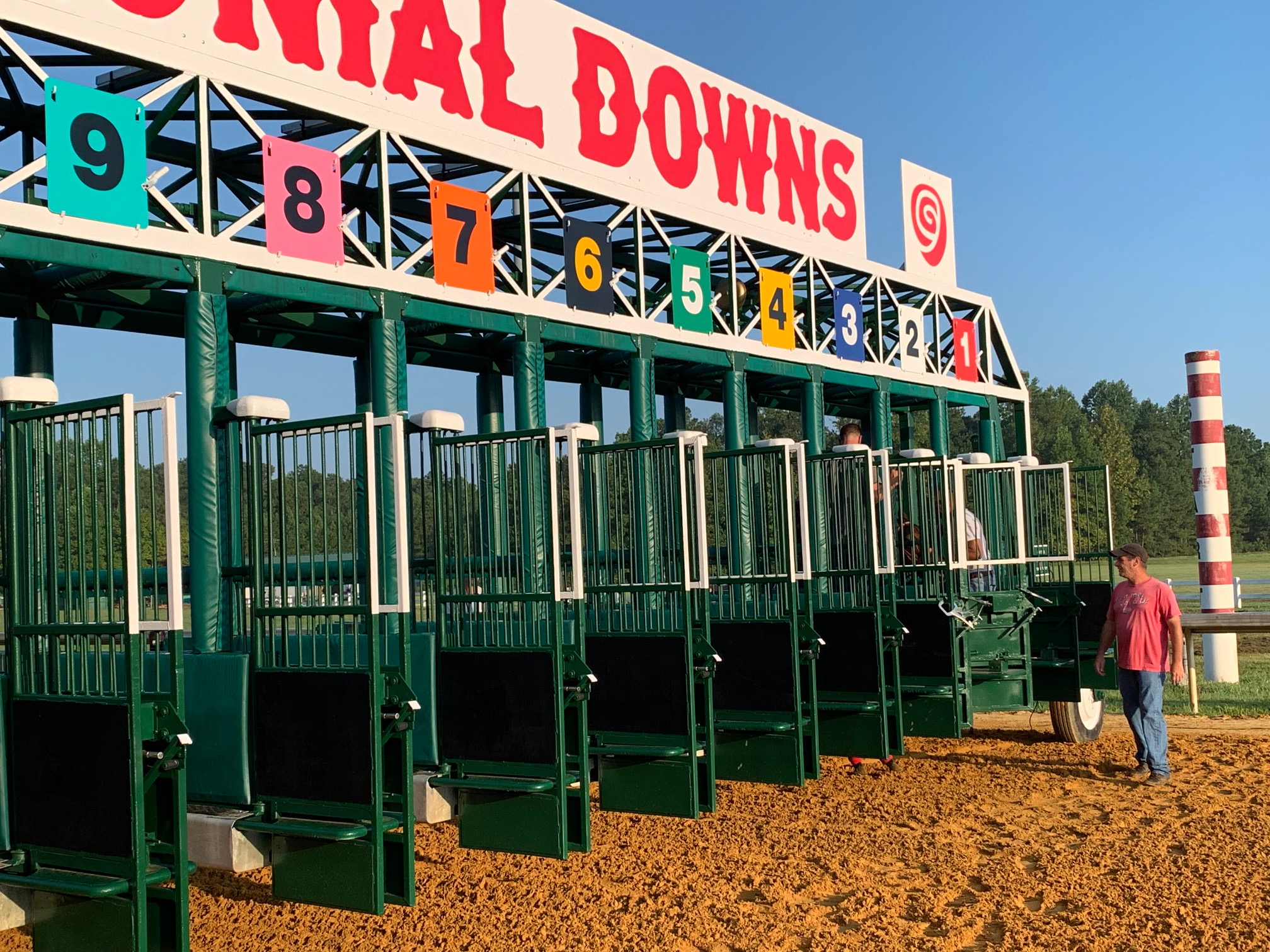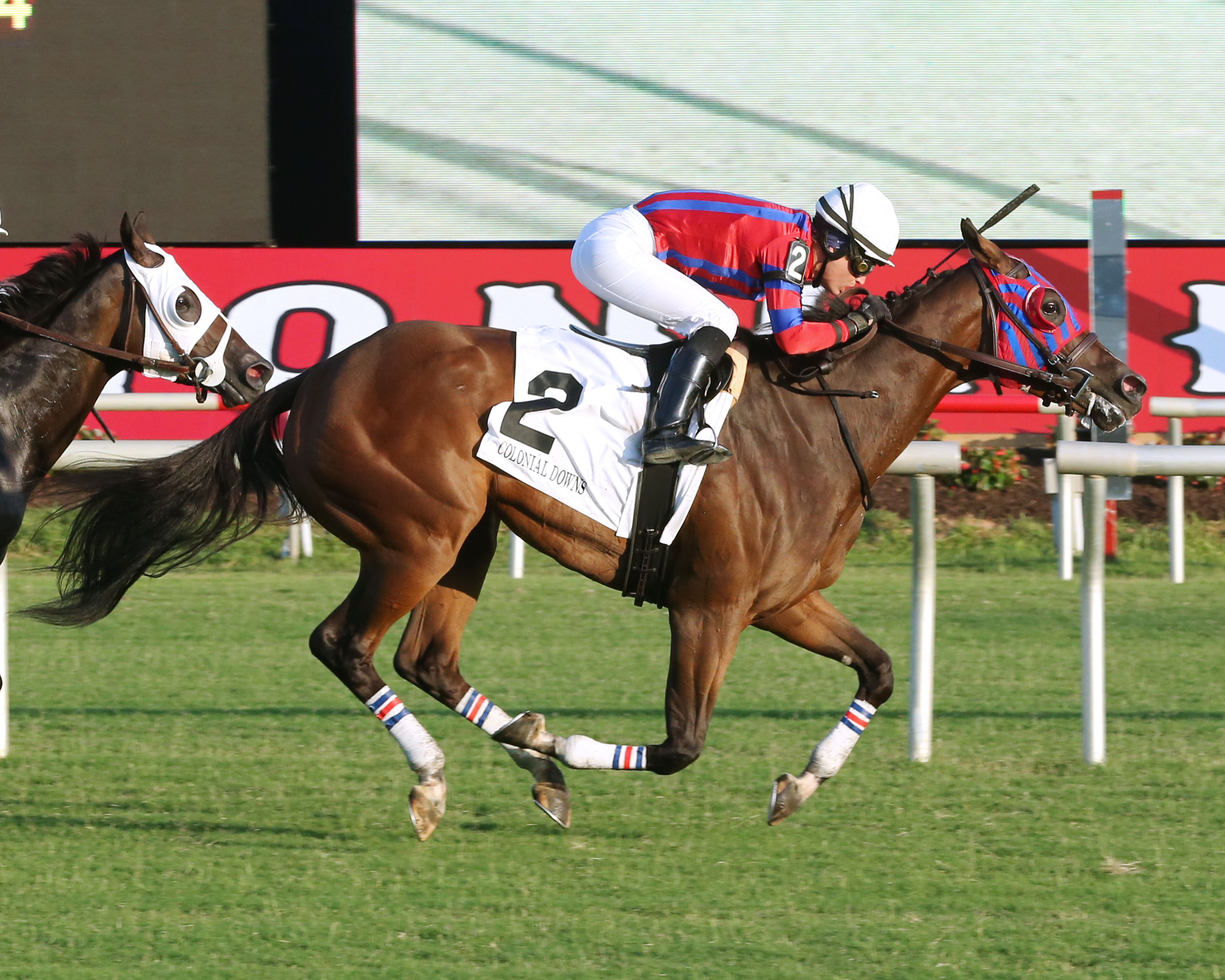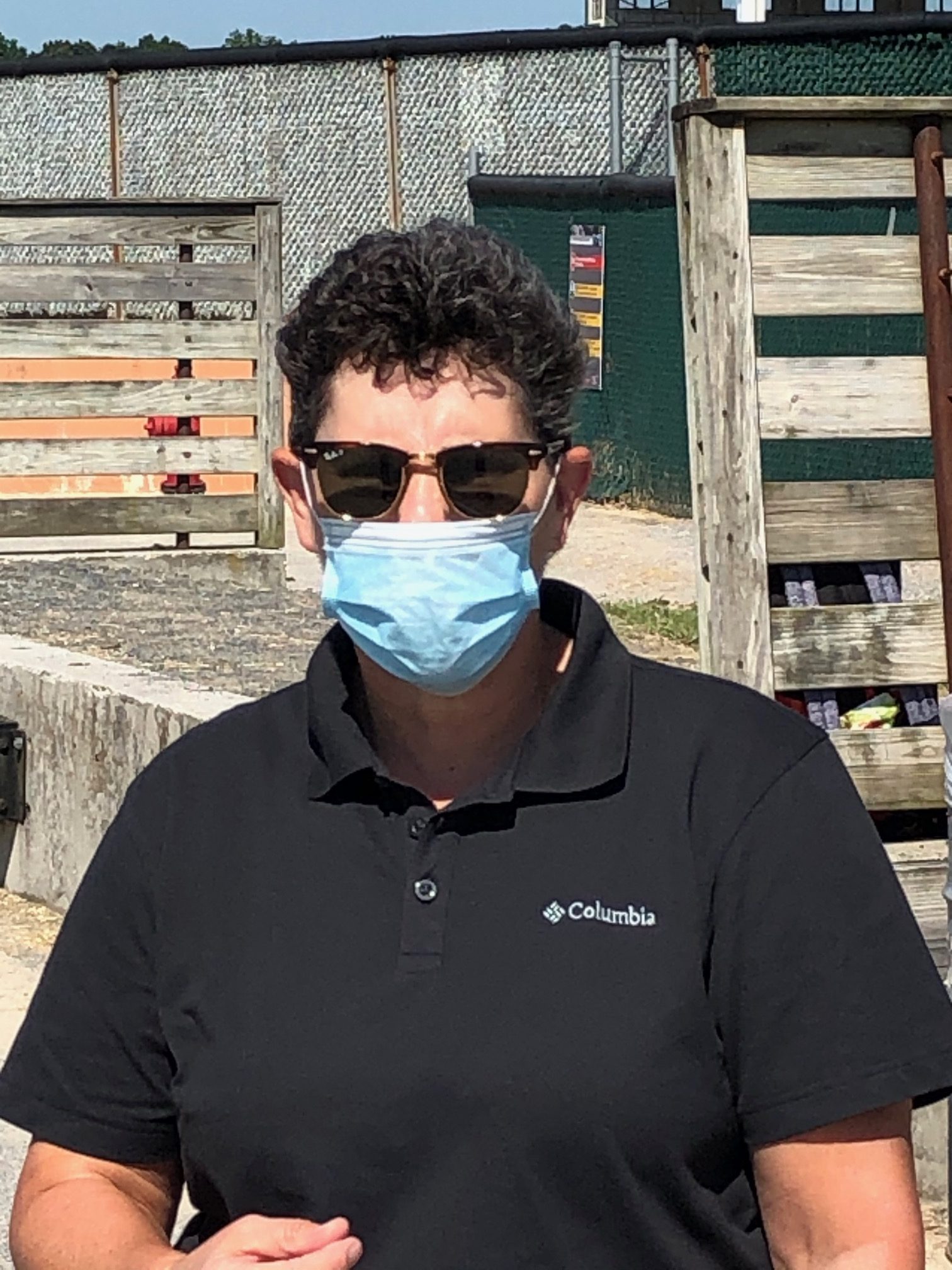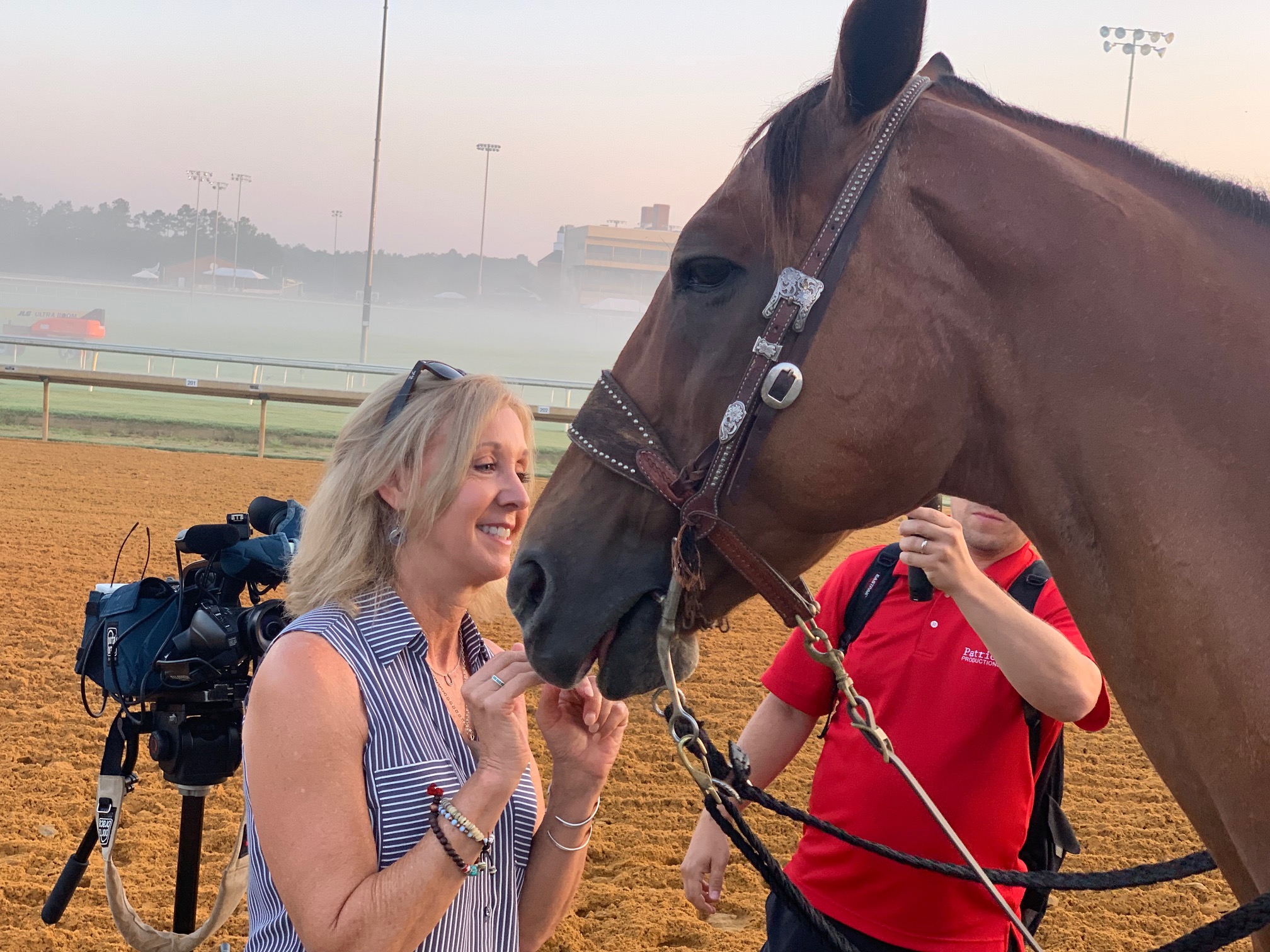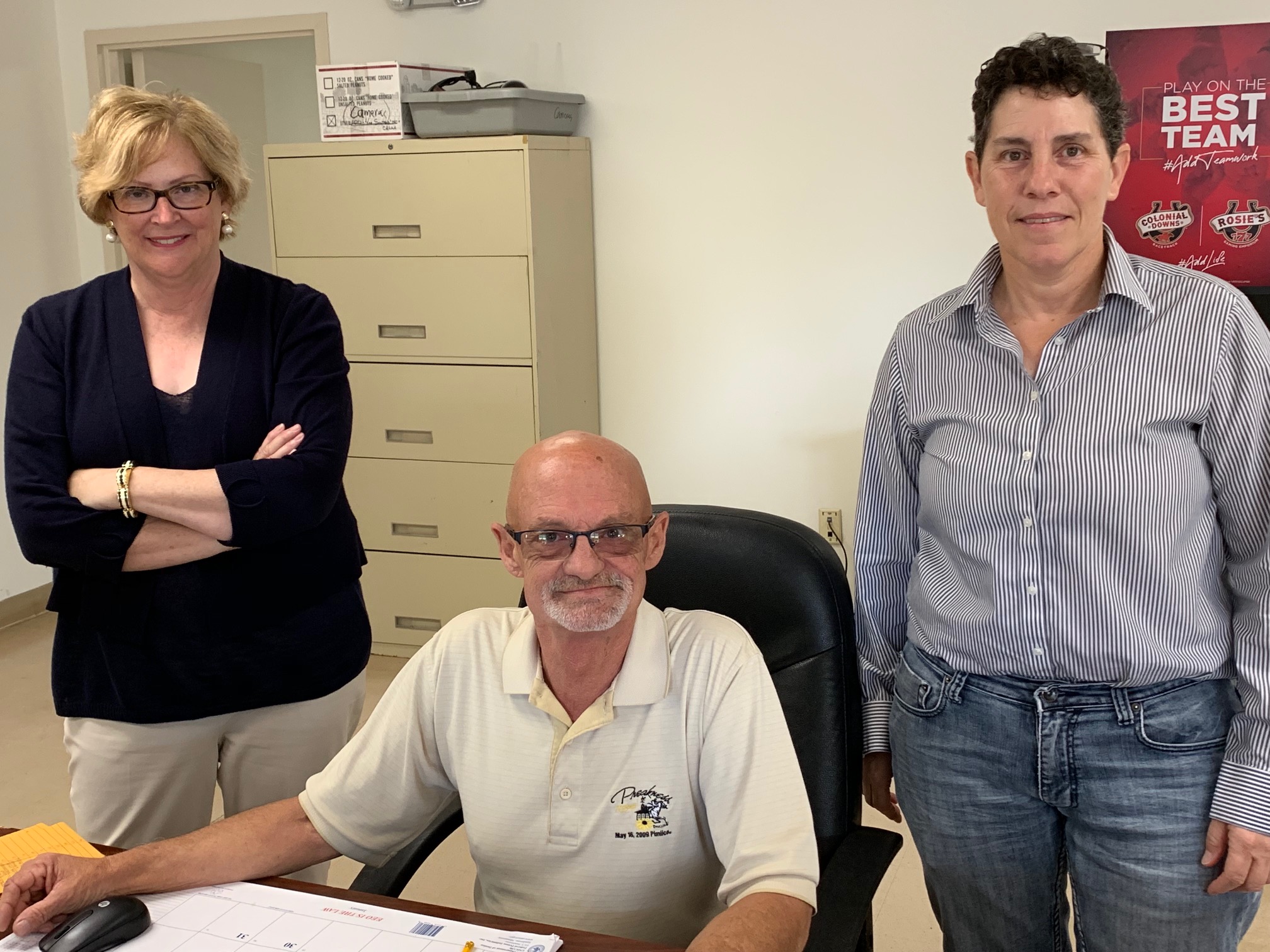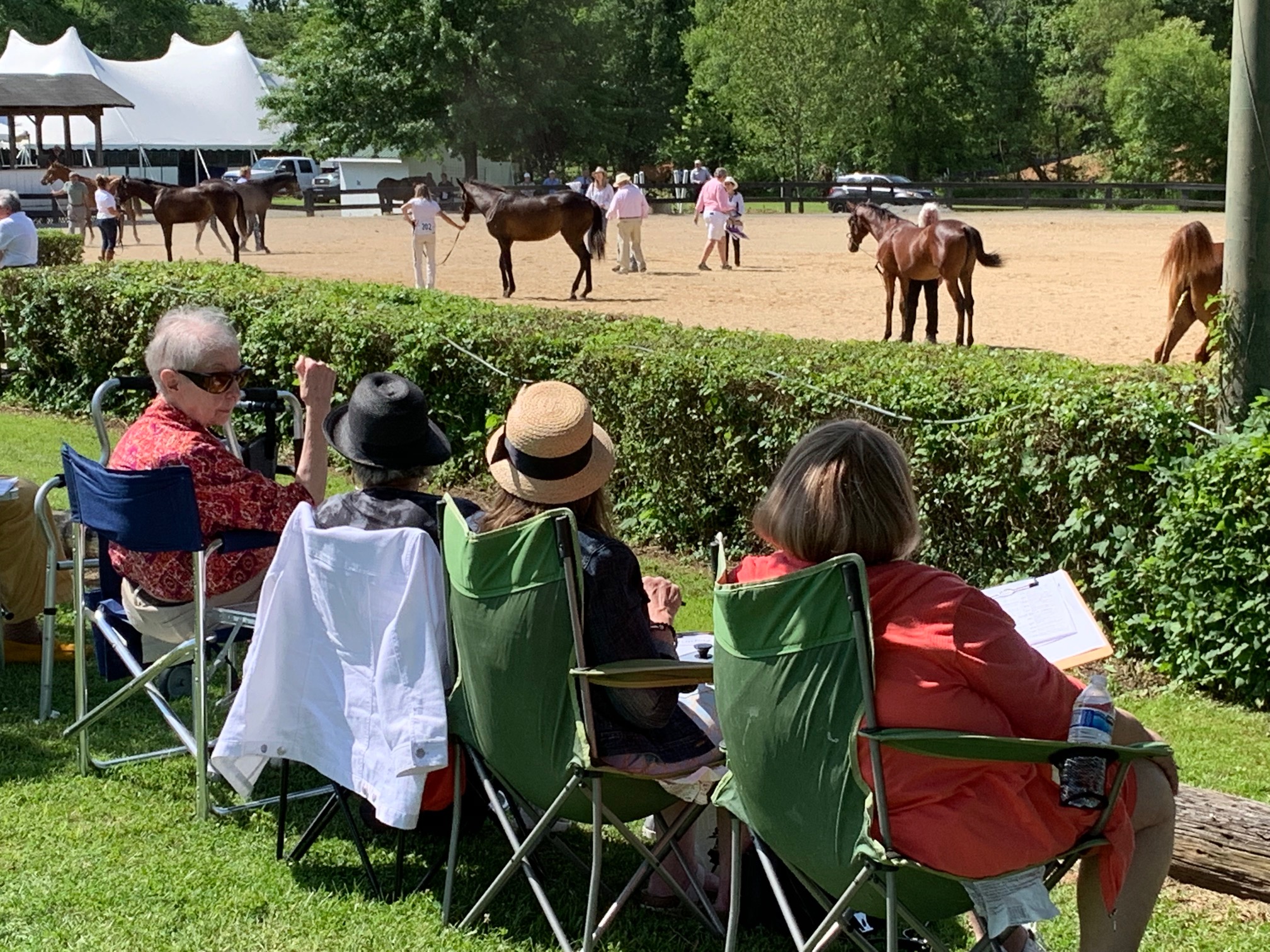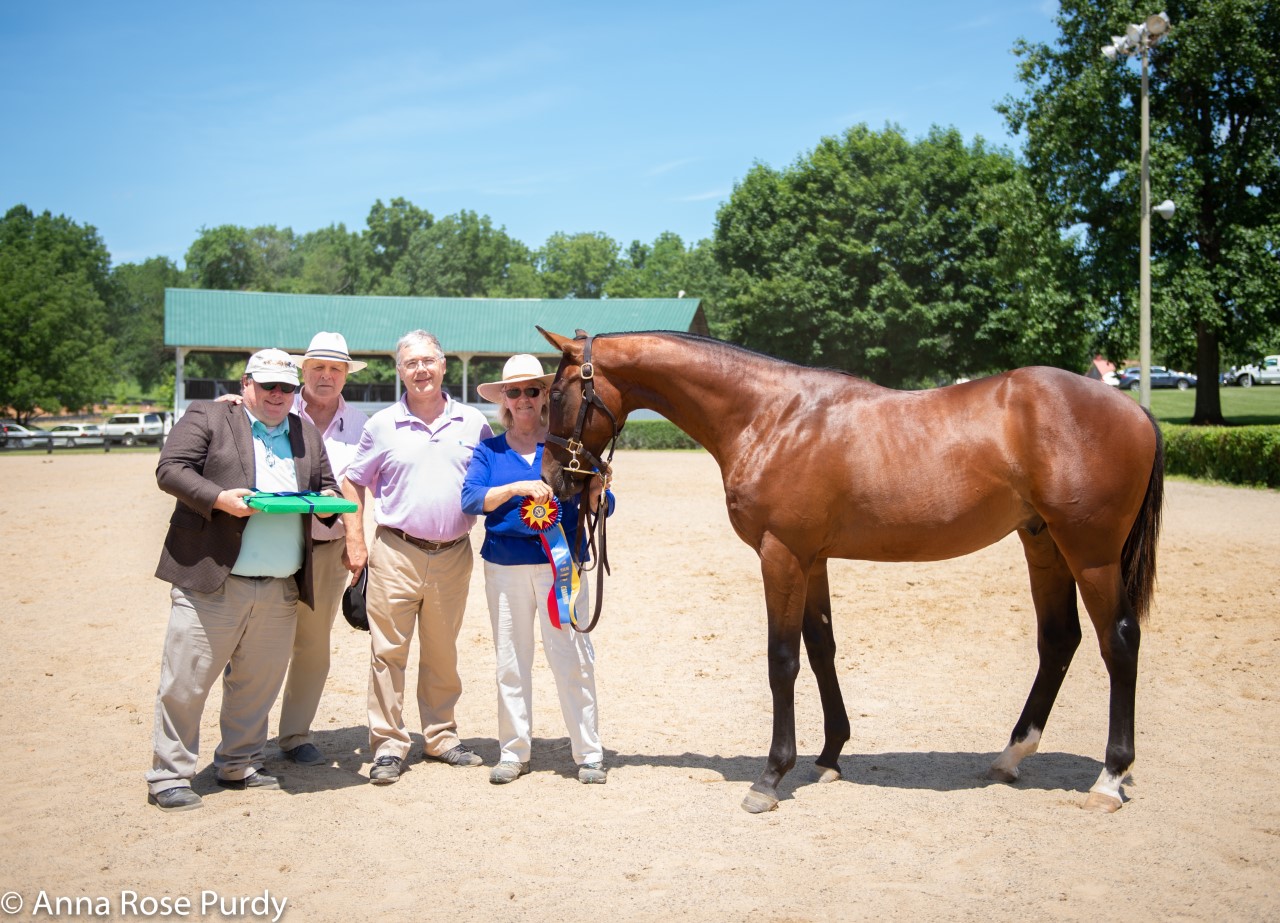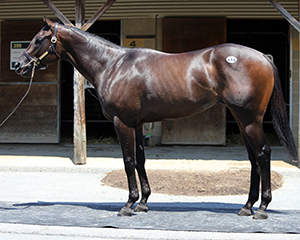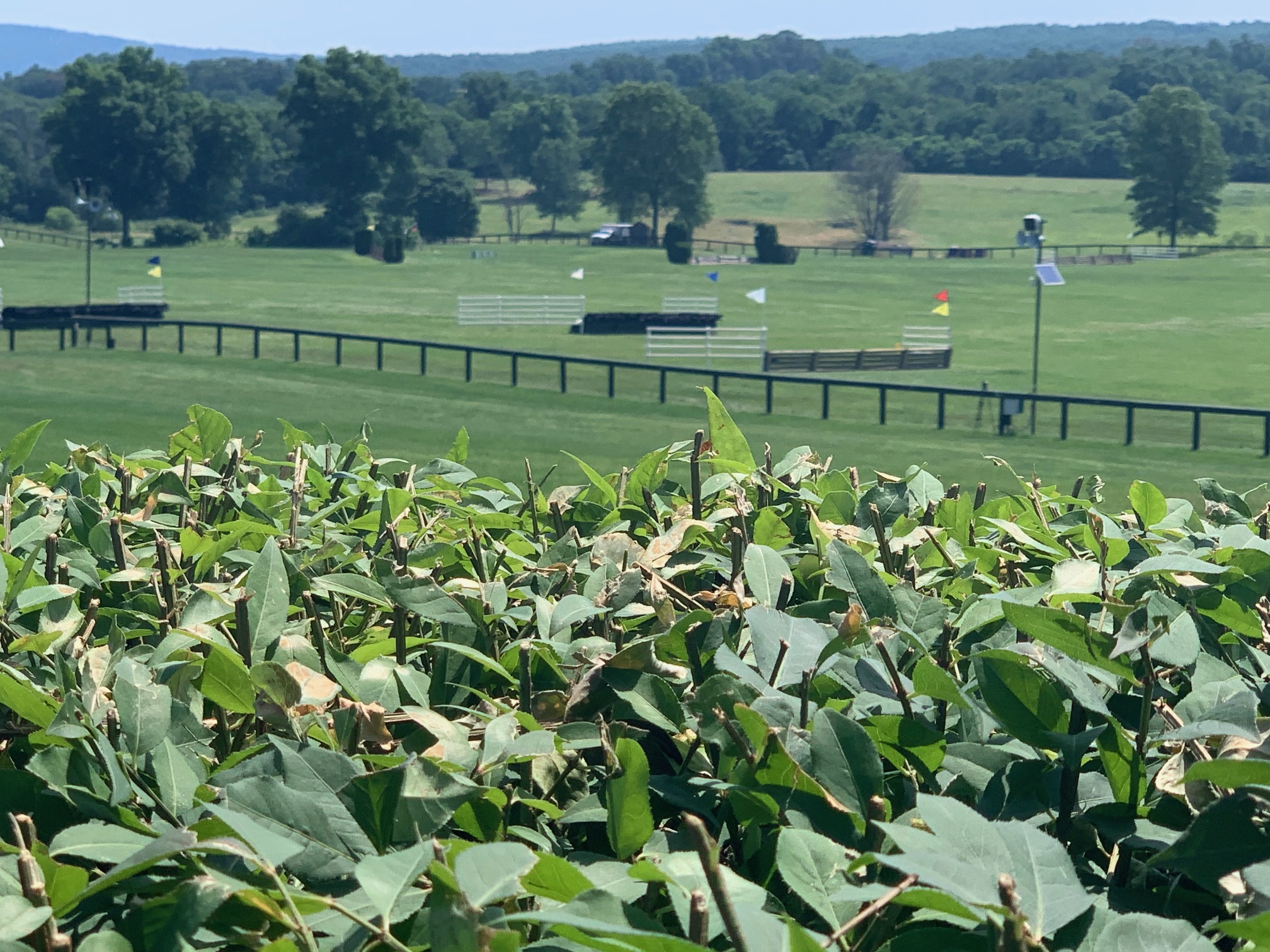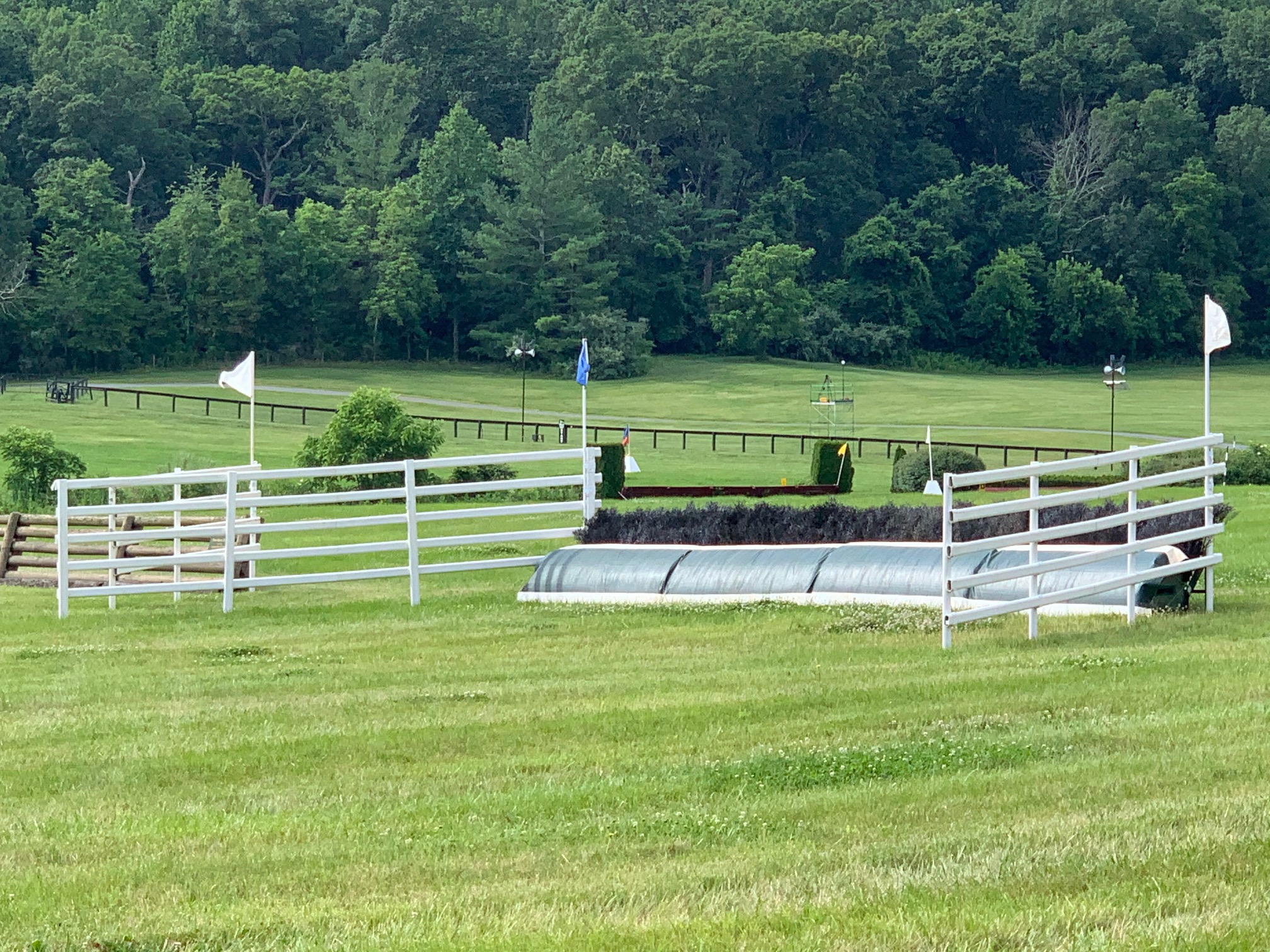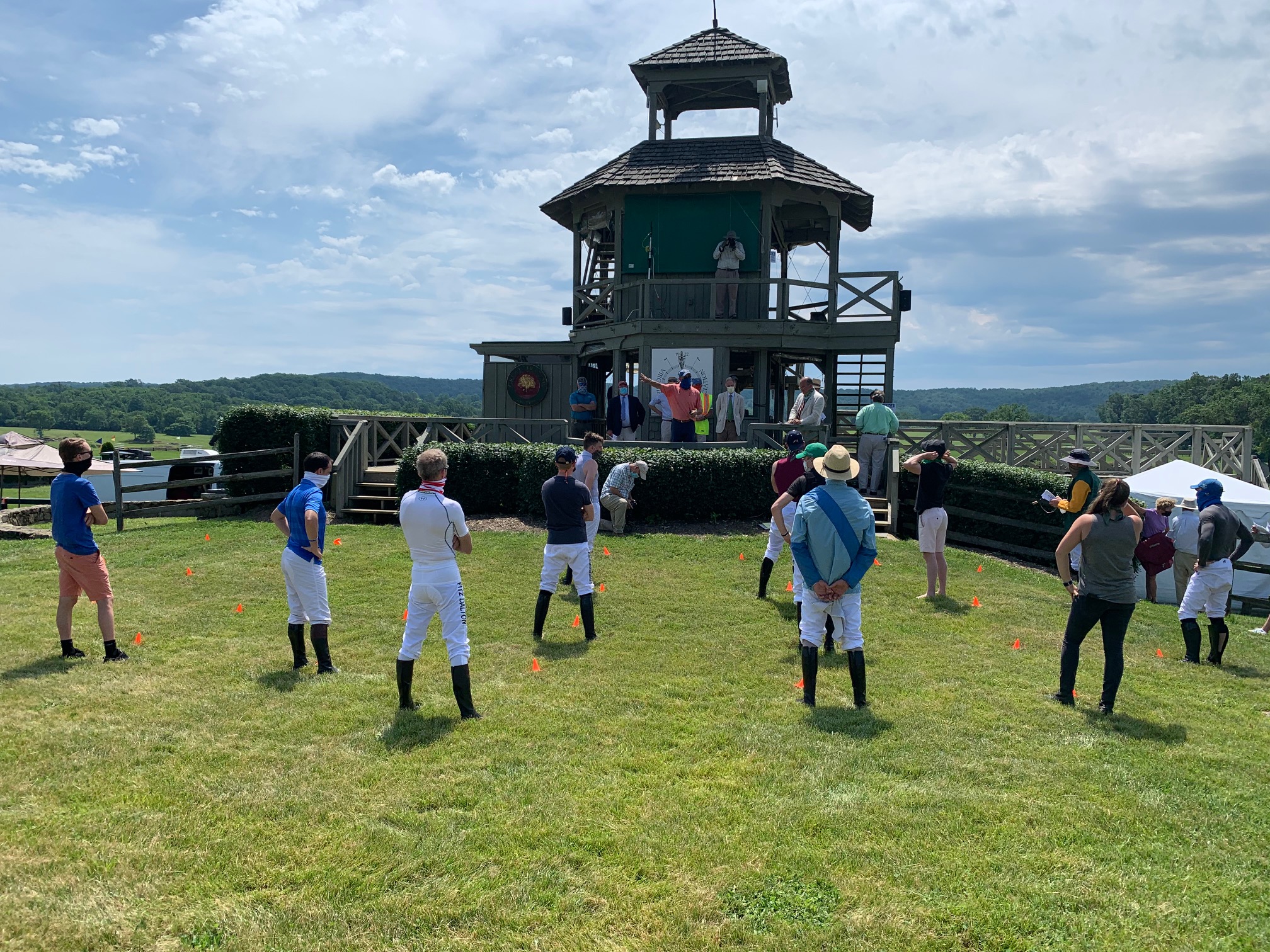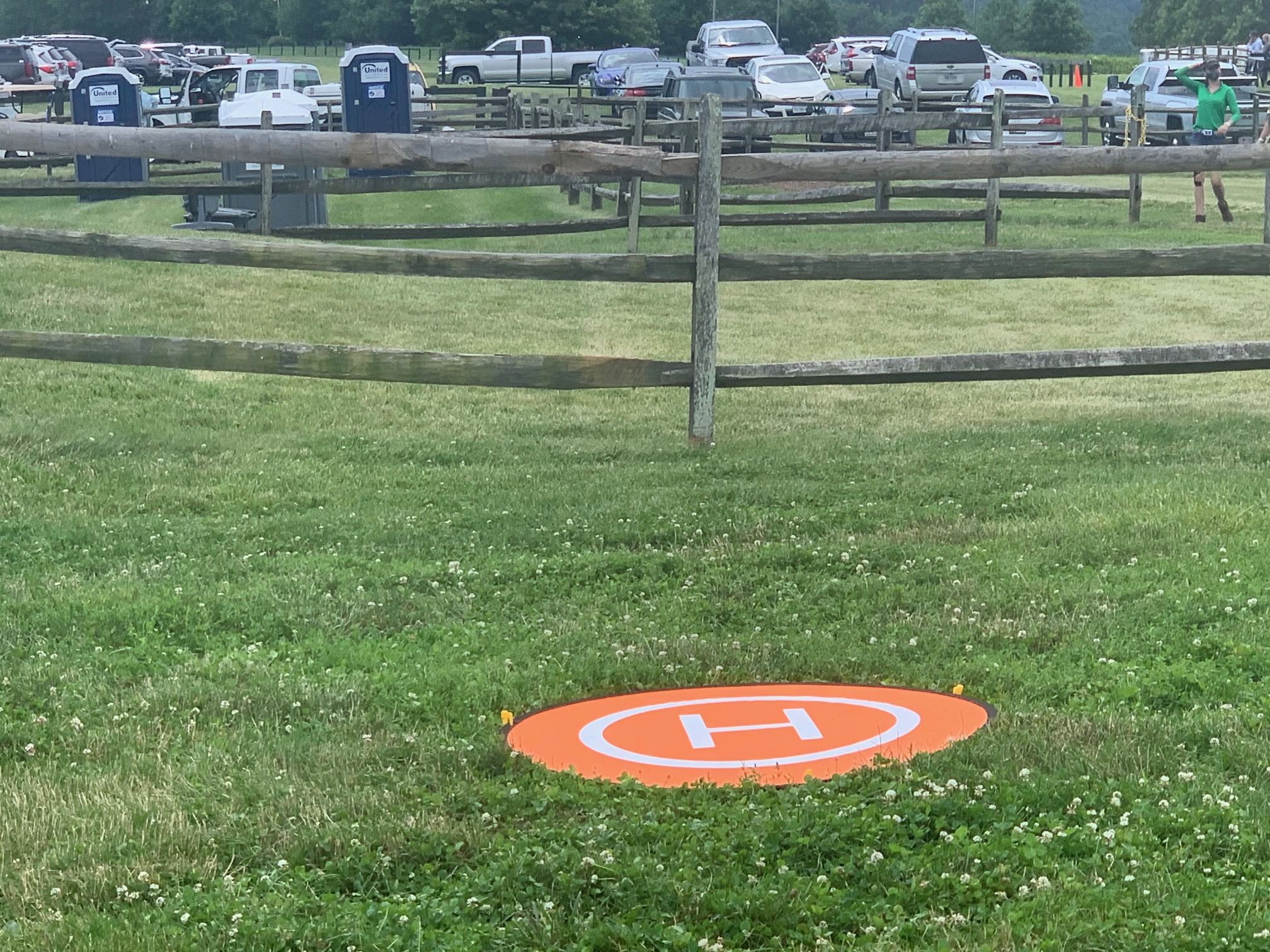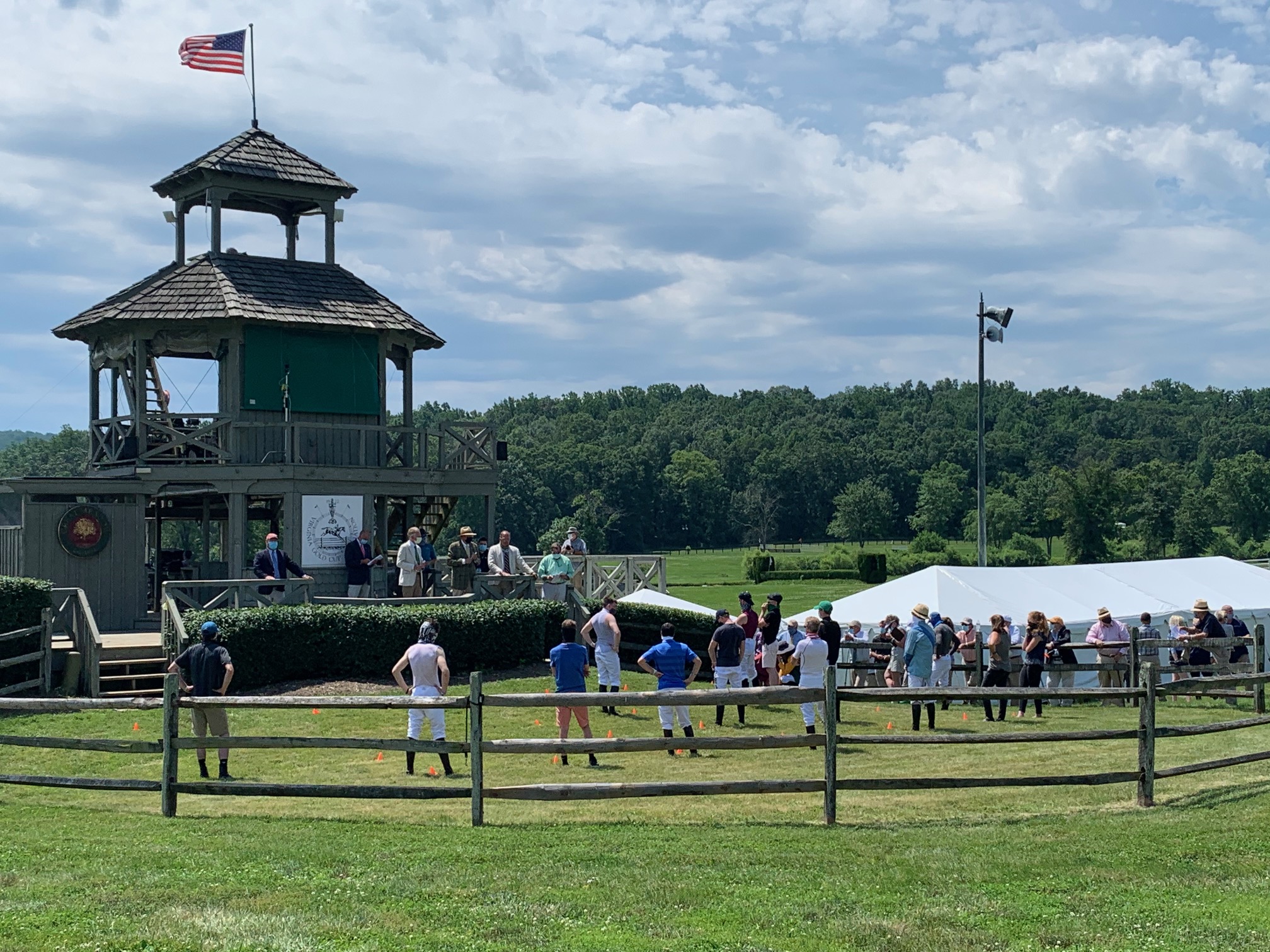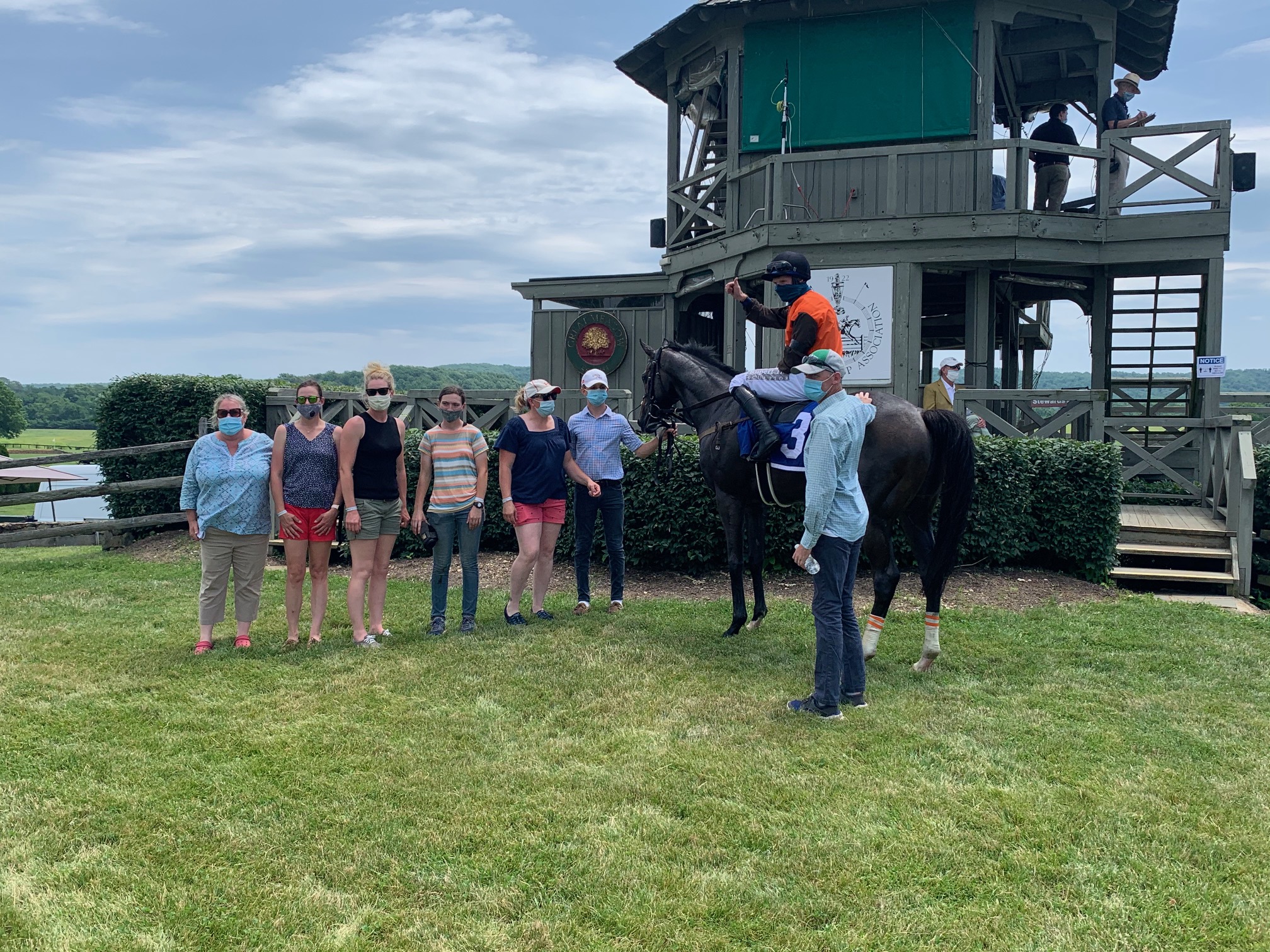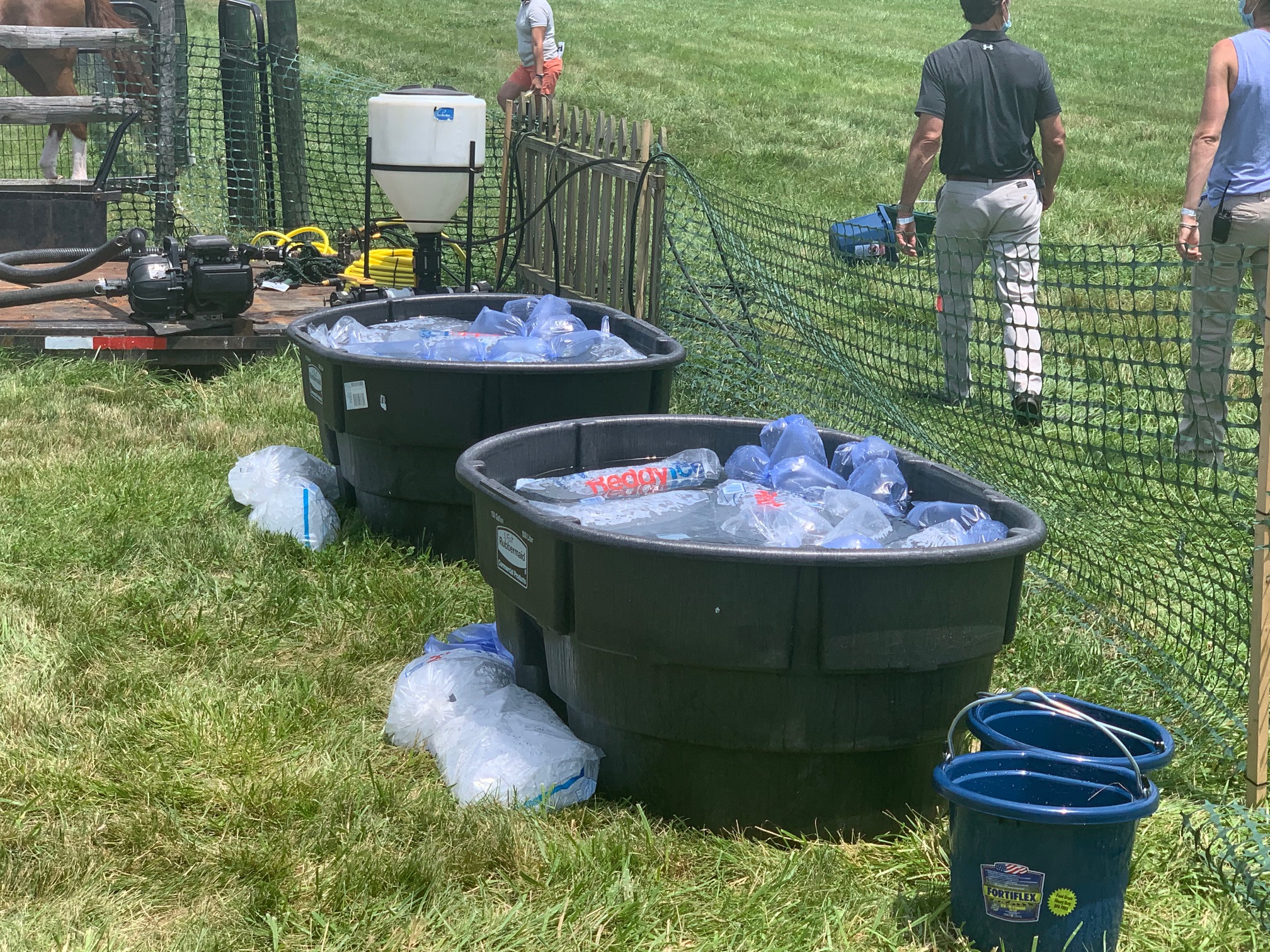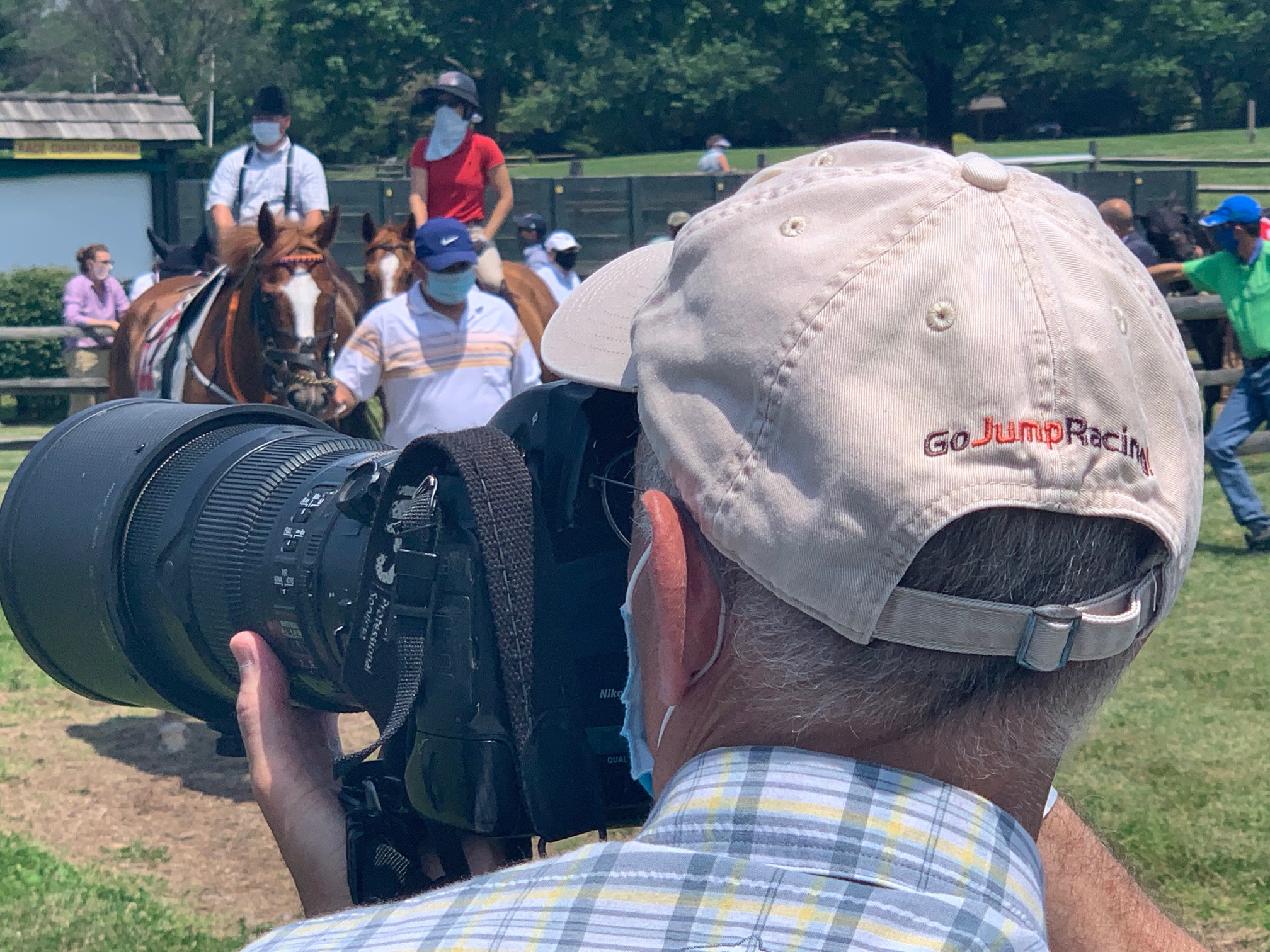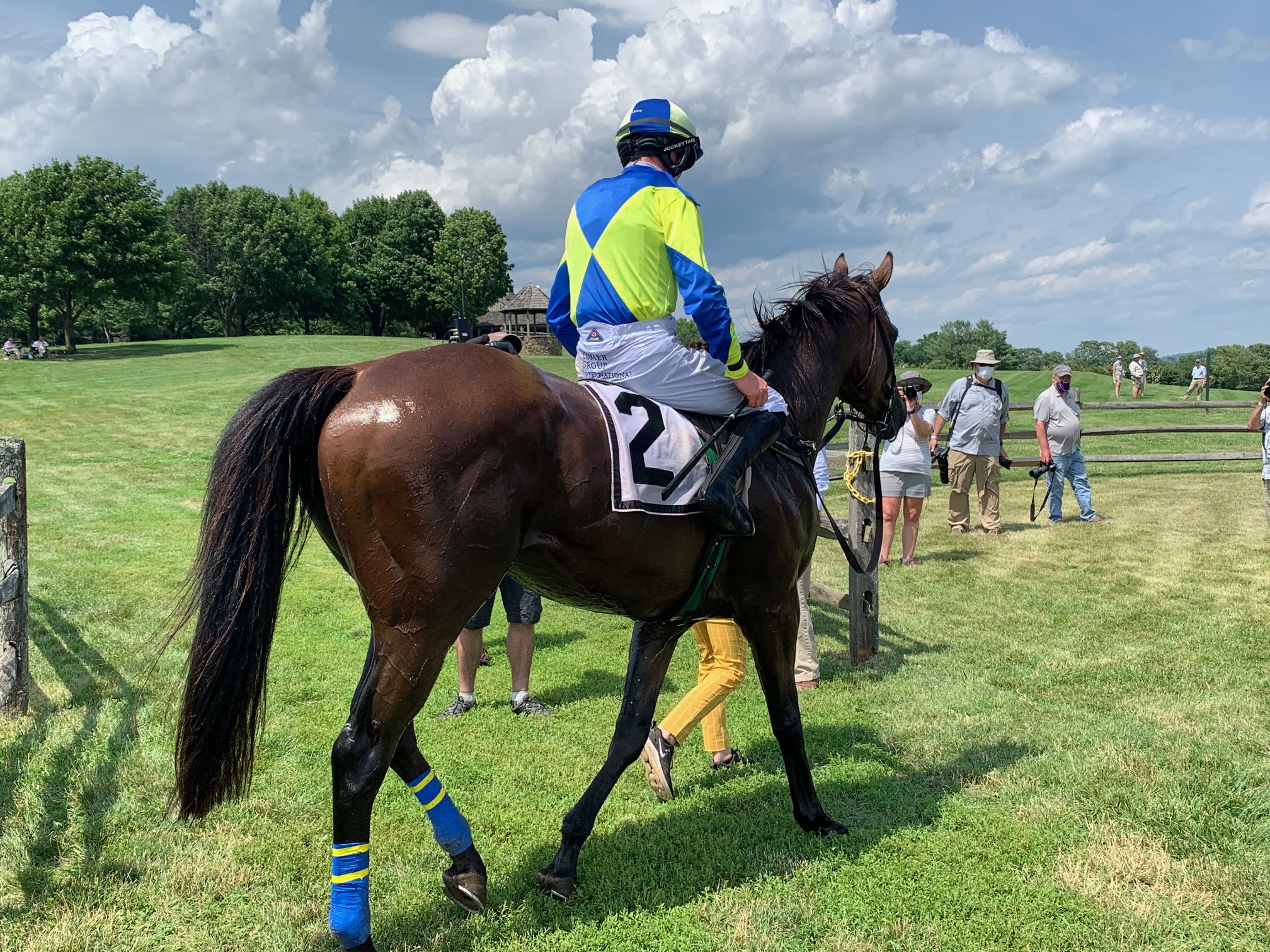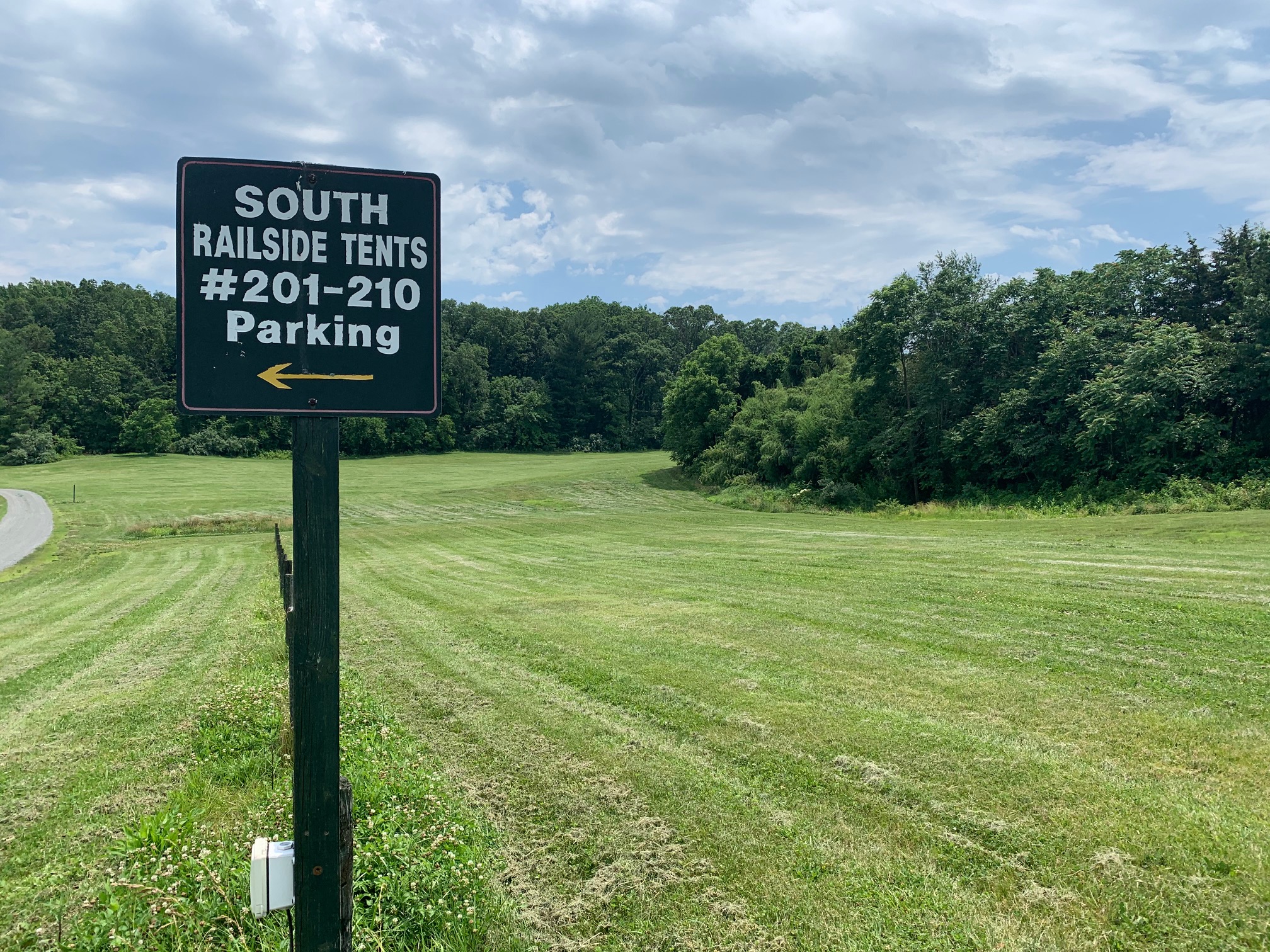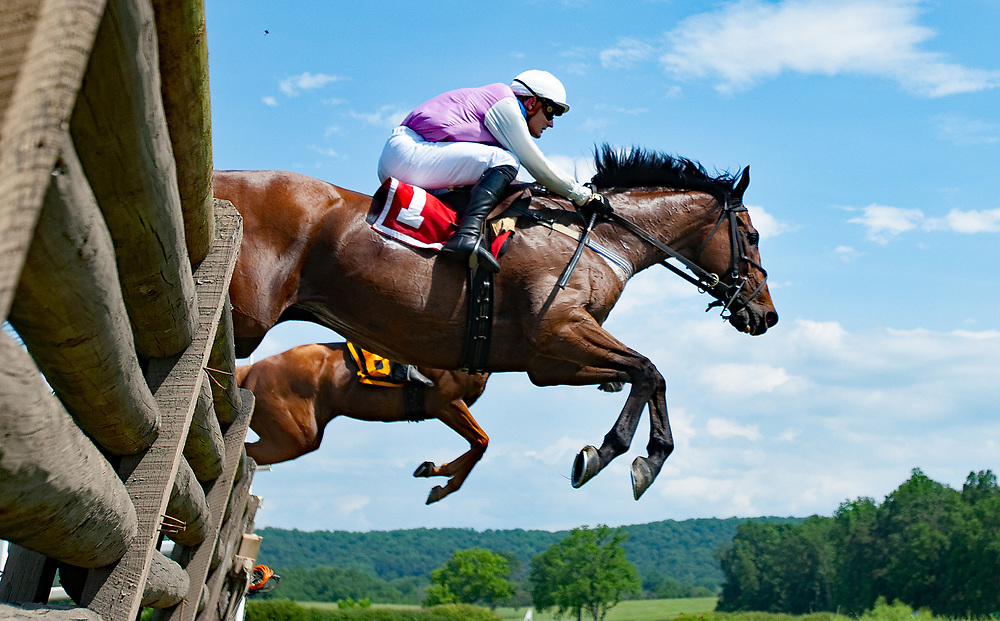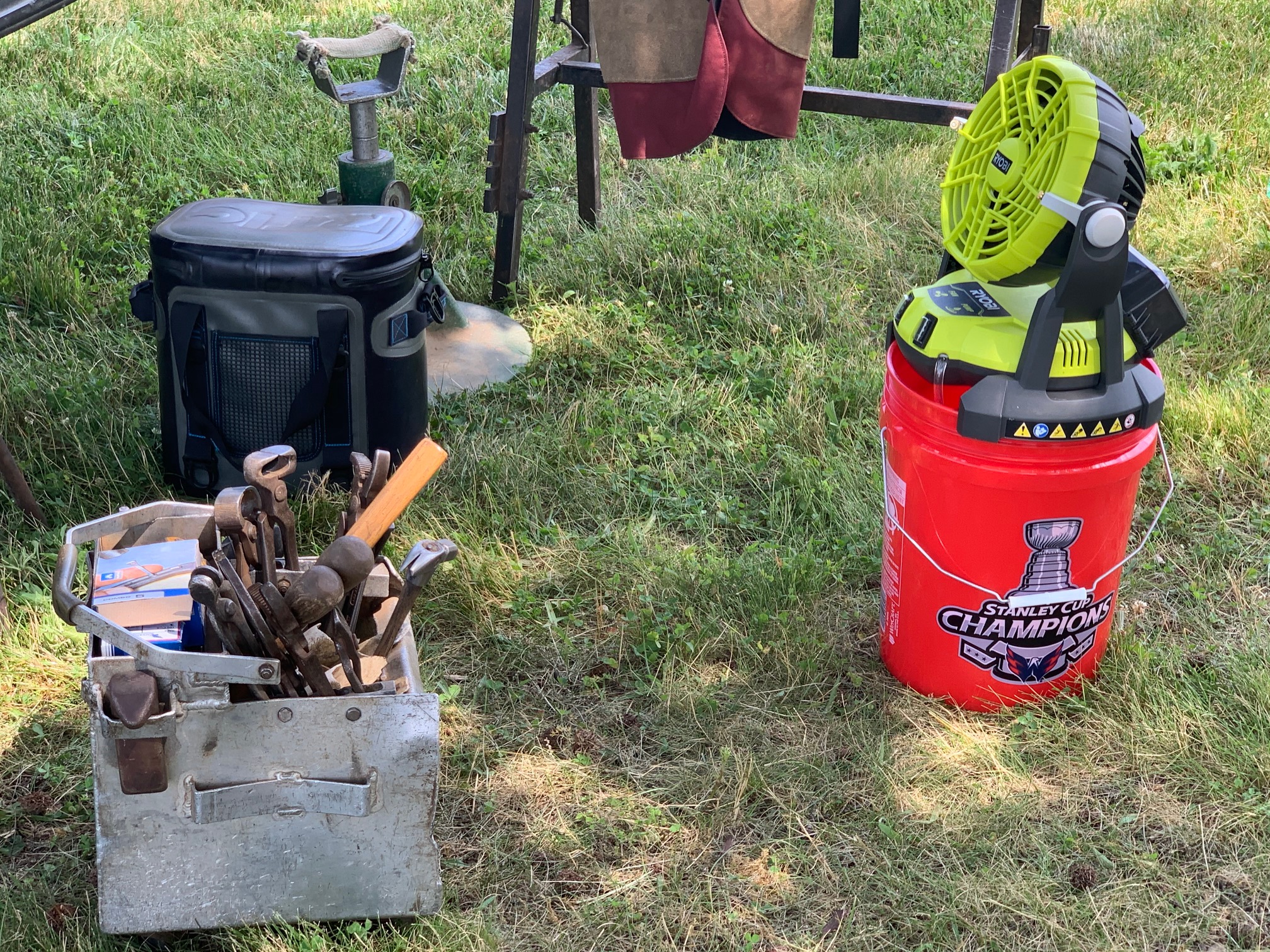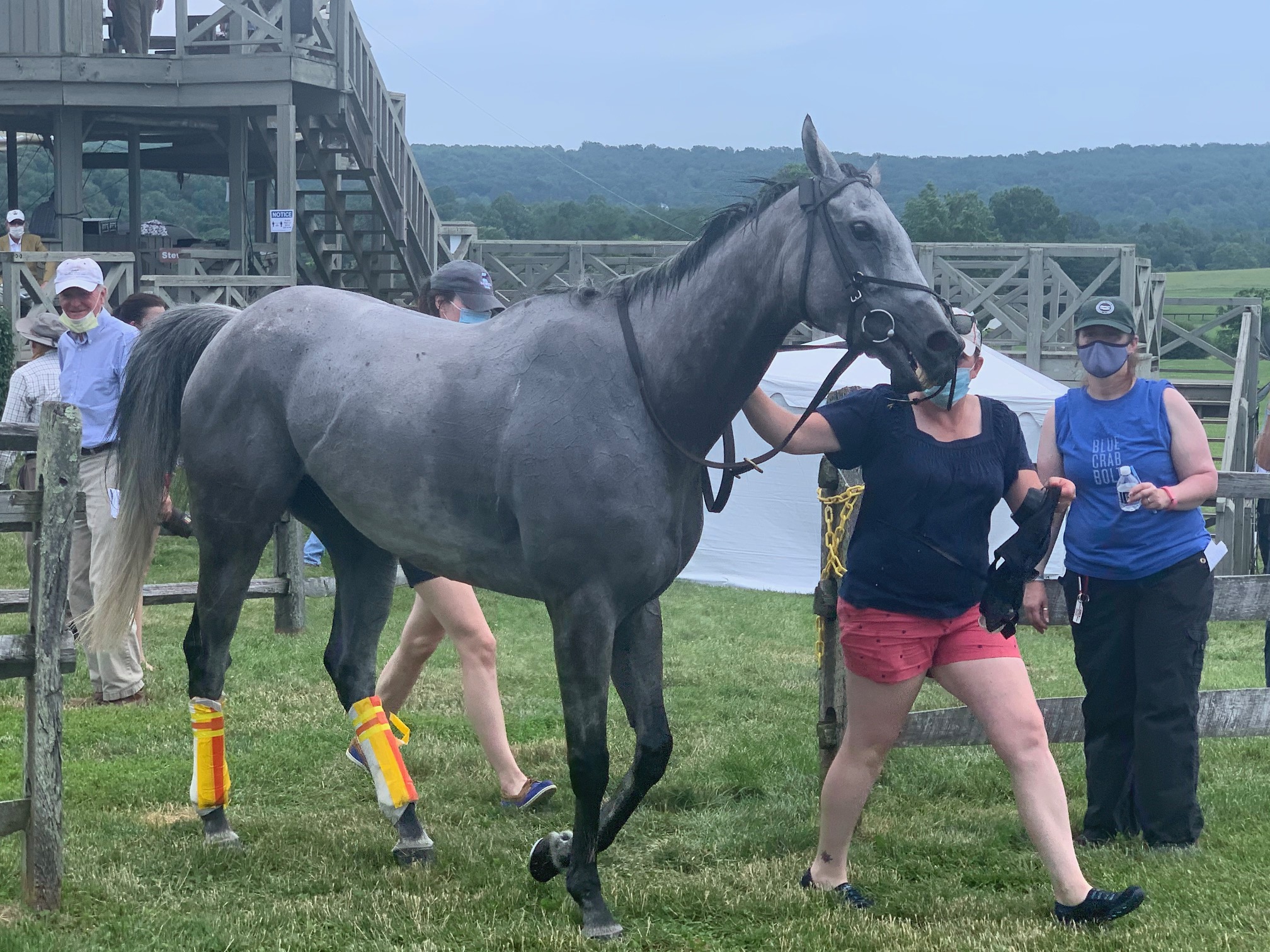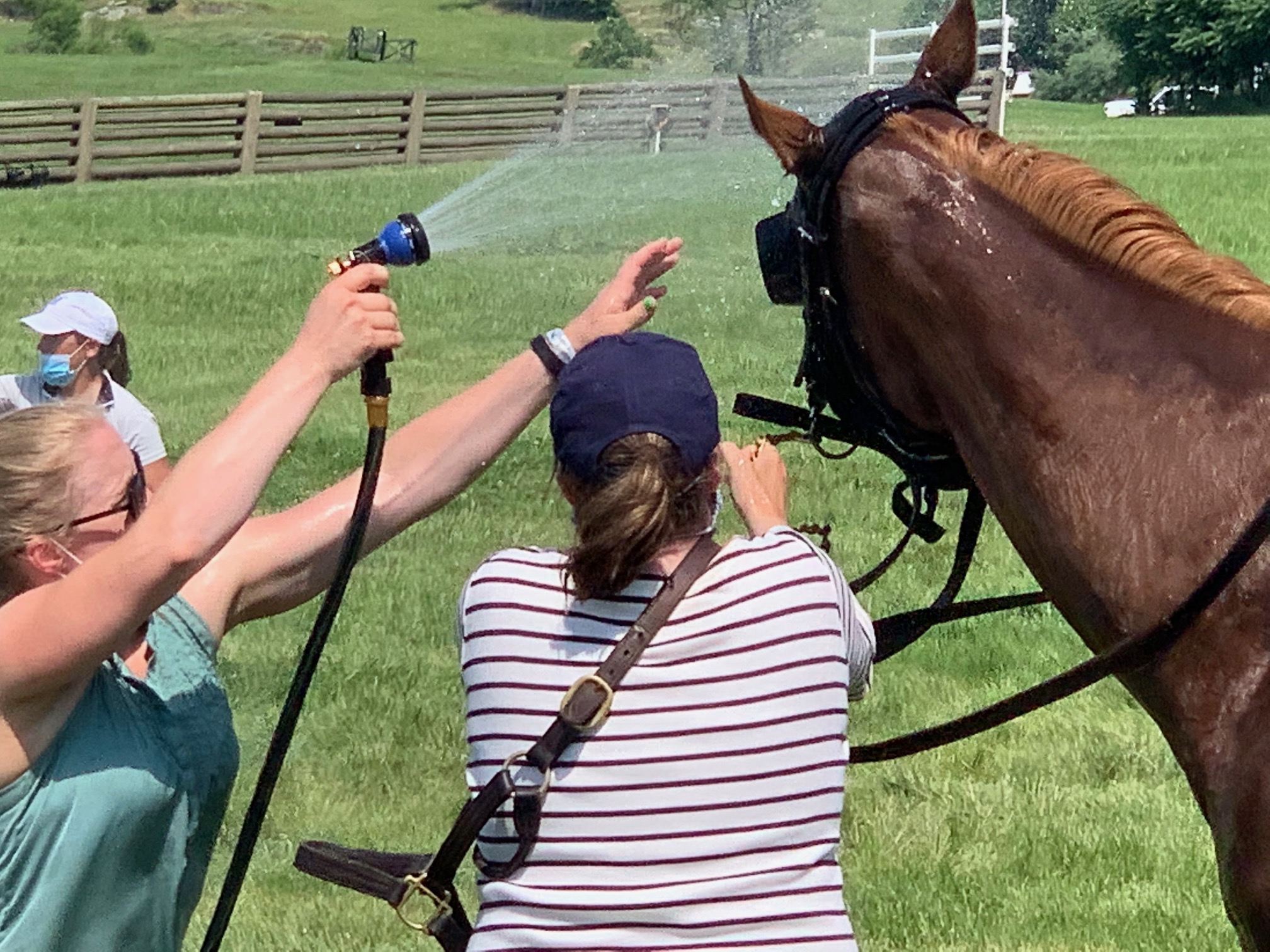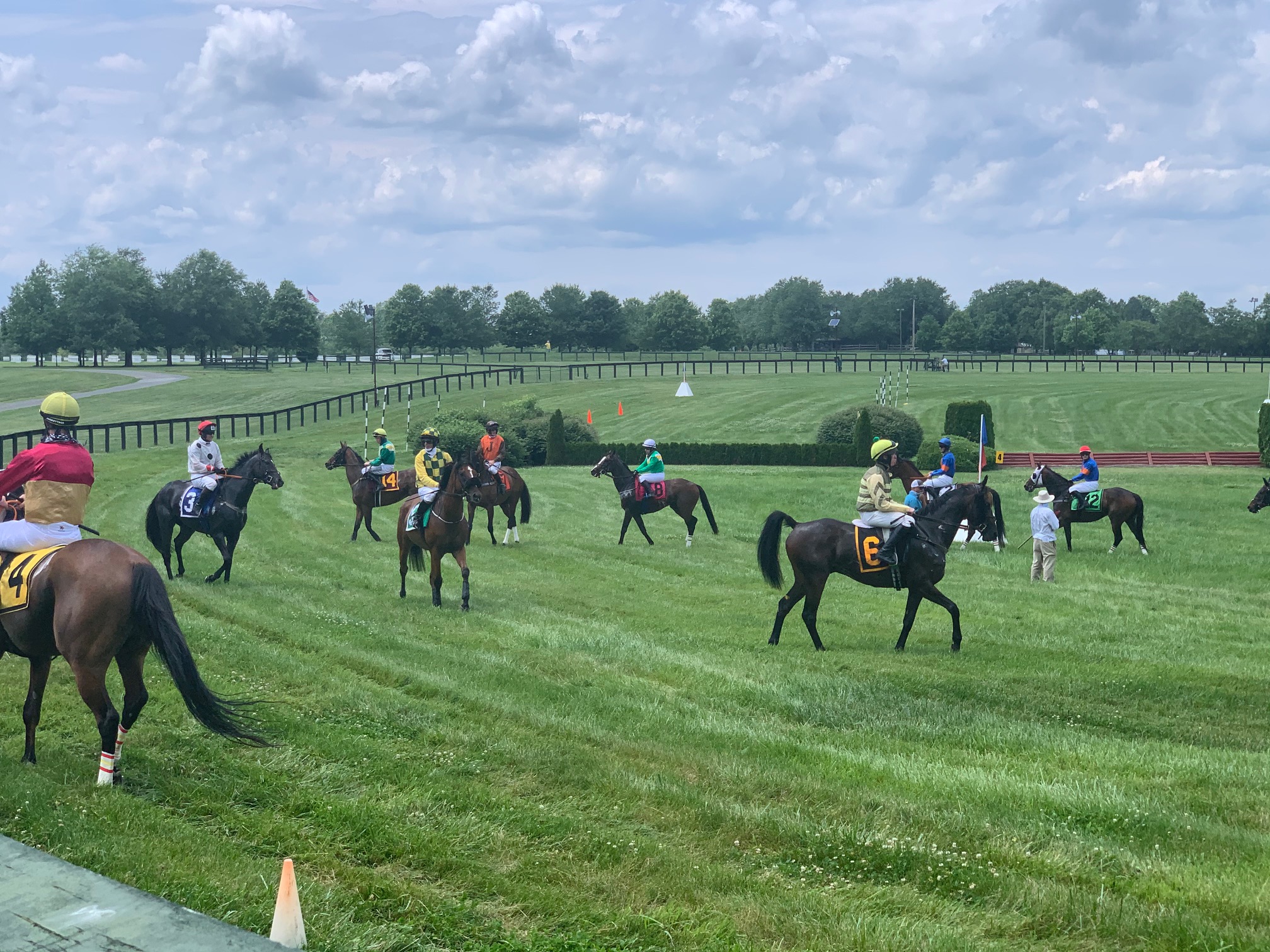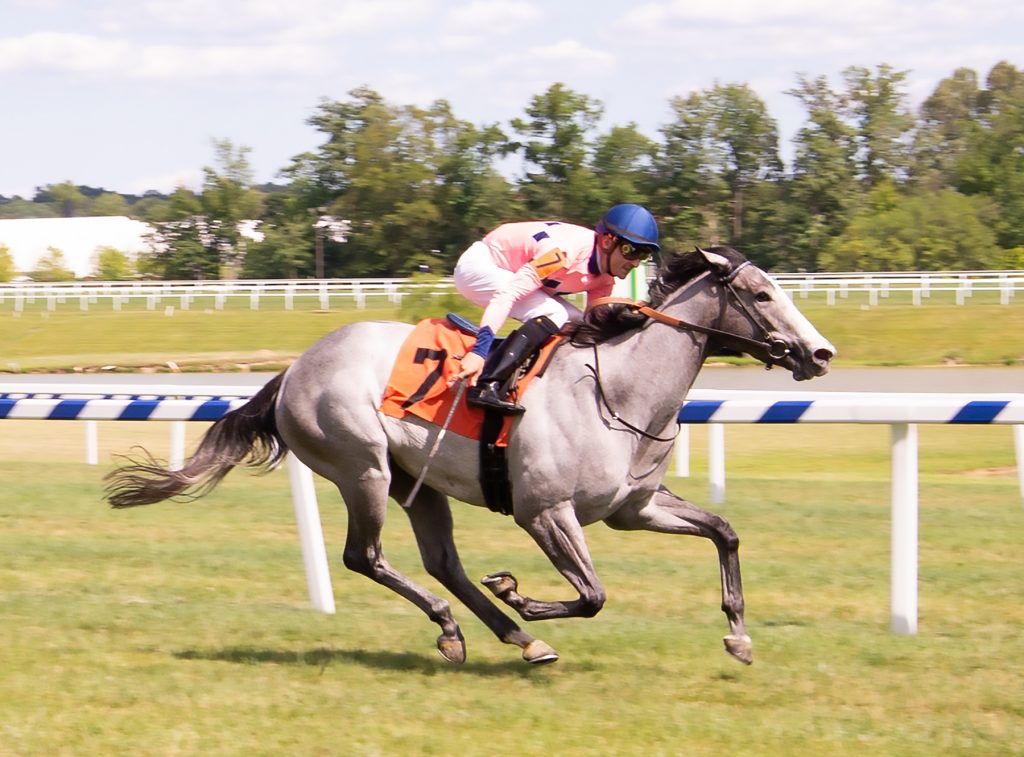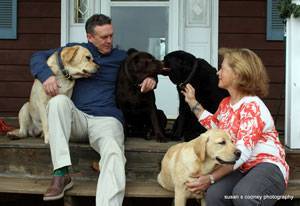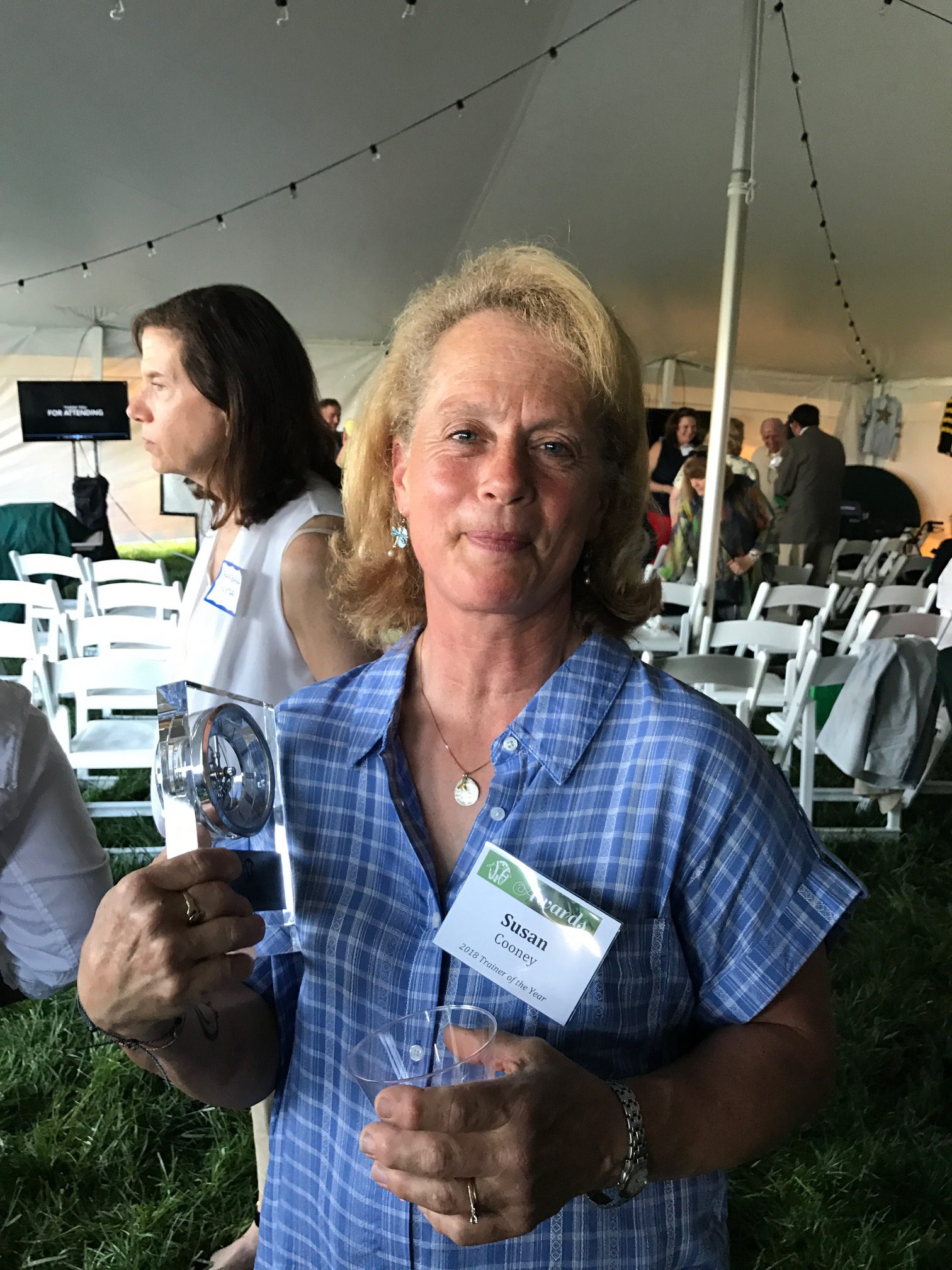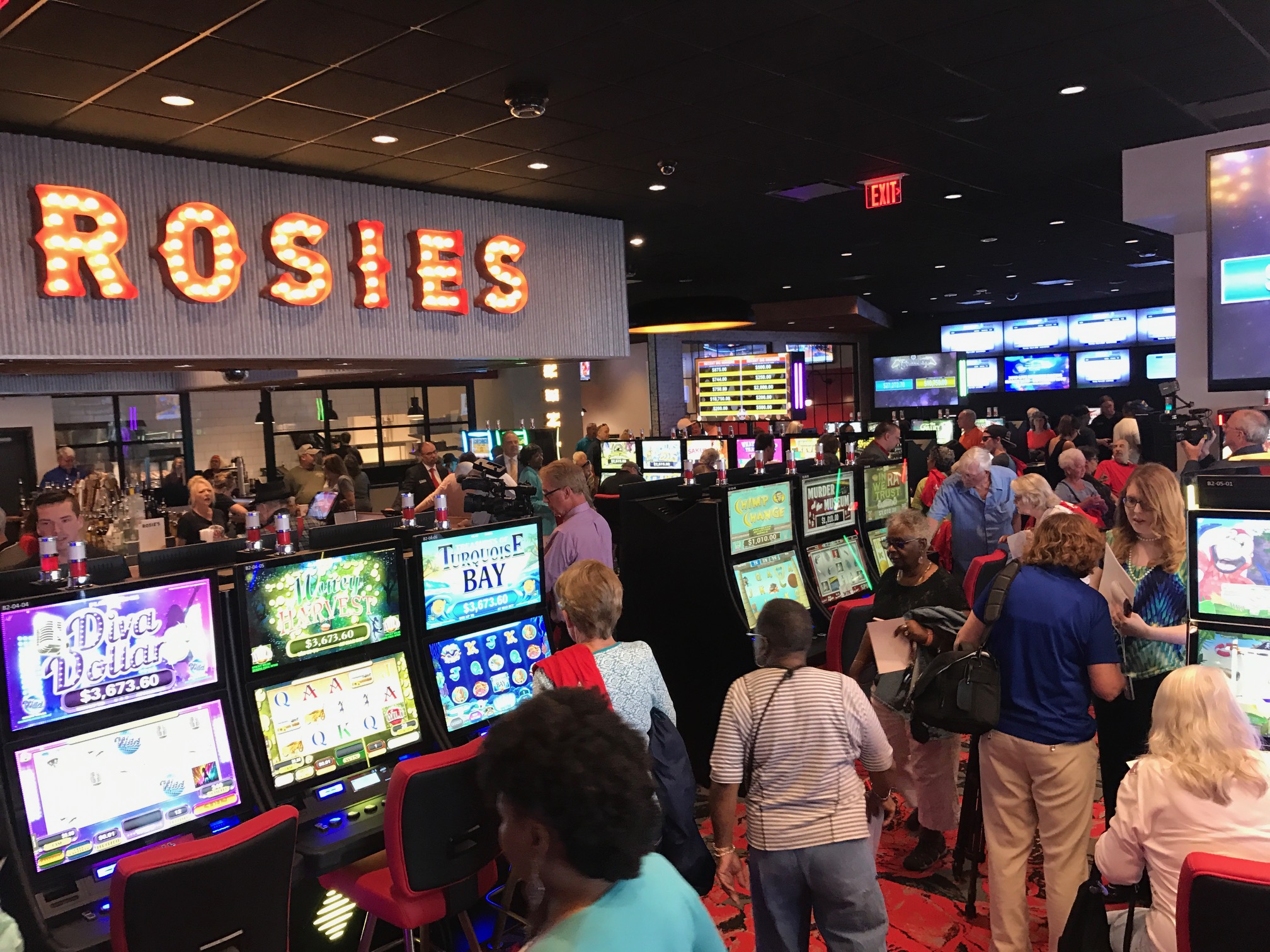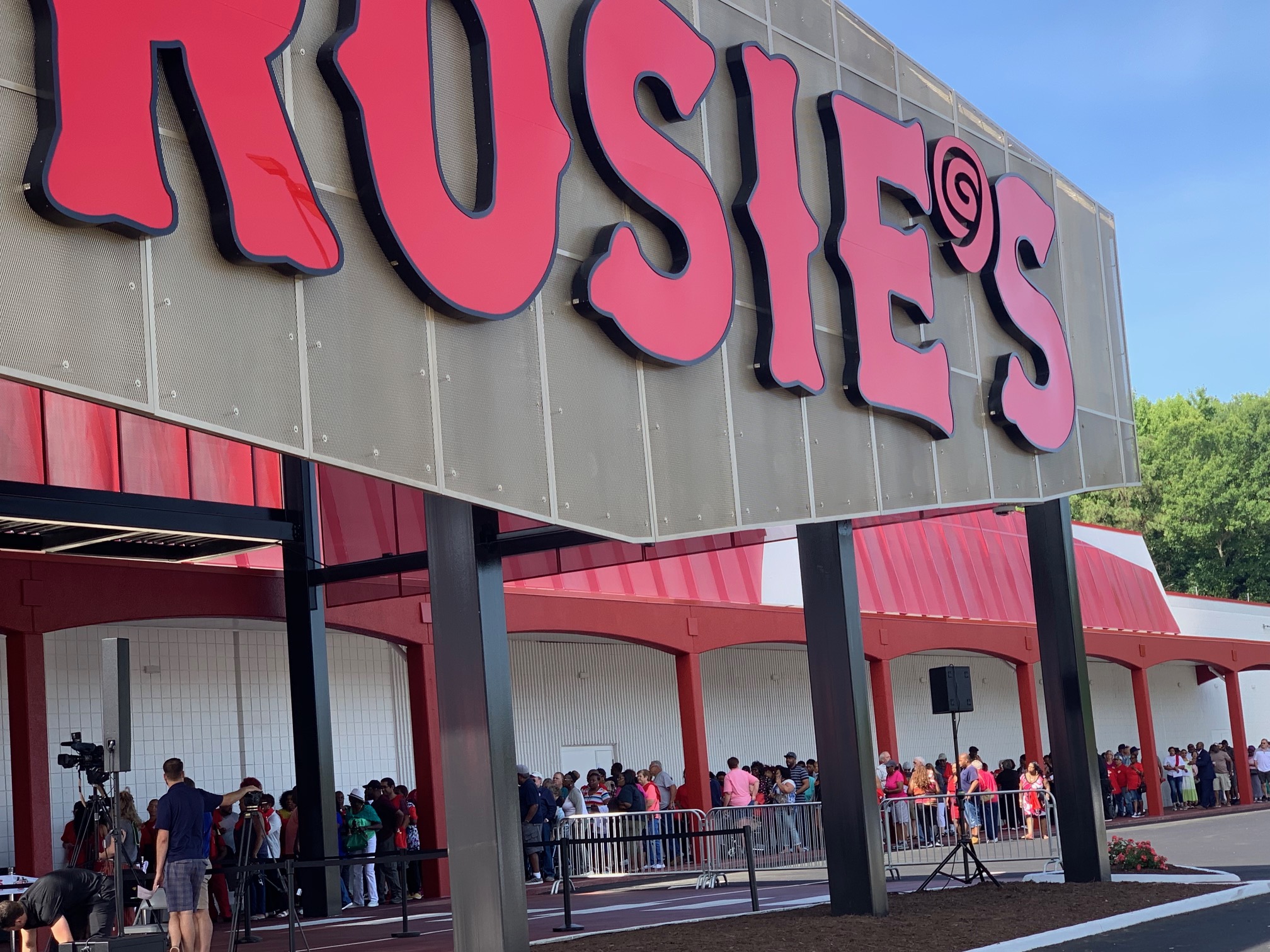Sausville, who grew up outside of Saratoga in upstate New York, won’t just savor the action as a fan. He has been able take his intense passion for racing and turn it into a budding career. This summer, he will be working in the racing department at Colonial Downs. He made a key connection last fall when he met Colonial’s Vice President of Racing Operations Jill Byrne on Breeders’ Cup weekend at Santa Anita. Byrne offered him a position during the 2020 meet and he arrived in New Kent two weeks ago.
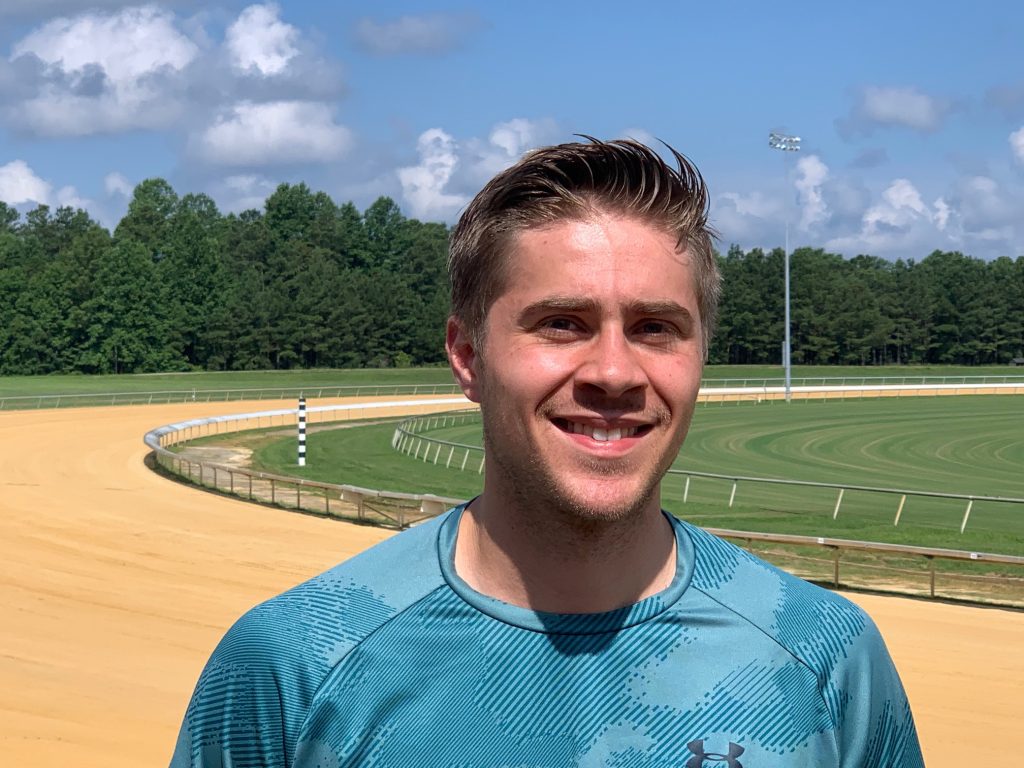
Come Monday when the track opens for training, he will be a backstretch “gap” attendant every morning during training hours — overseeing the flow of equine traffic on and off the track, to and from the barn area. During the races, he will help insert Equibase timing system chips into each horse’s saddle towel as an assistant paddock judge. And in between, he’ll do anything else that is needed or asked of him. “I expect to have some long days but am looking forward to the experience,” he said.
Sausville didn’t grow up in a racing family, but his family had a lot of interest in the races given his proximity to Saratoga. “I’d go to the races and simulcast rooms with my father, uncle, and godfather pretty much every Friday and Saturday when Saratoga was racing,” he said. “We did doubleheaders those days — Thoroughbreds in the afternoon and harness, which was right across the street, at night.”
Sausville enjoyed everything about racing and thought about a career in the field but didn’t know how to go about it. After high school, he attended St. John Fisher College in Rochester for four years where he played basketball and got a degree in Marketing. After graduating, he heard about the University of Arizona’s Race Track Industry Program (RTIP) from Gulfstream track announcer Pete Aiello and decided to pursue the opportunity.
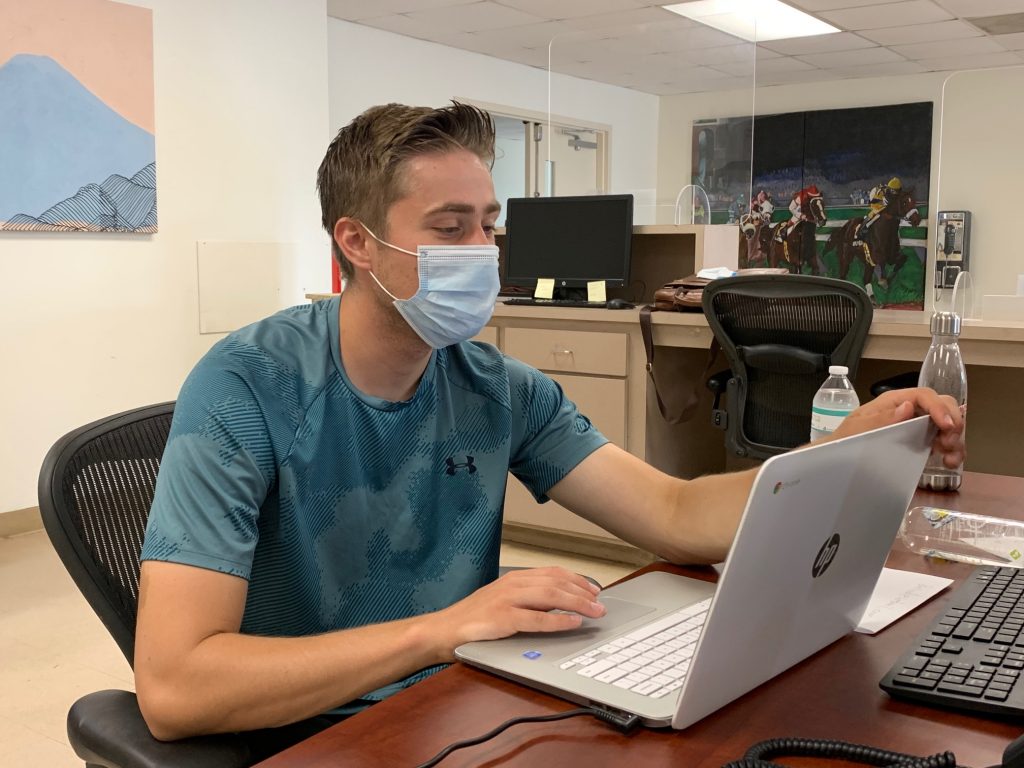
He ended up spending the next 1 1/2 years in Tucson taking courses in racetrack management, racetrack marketing and animal sciences among others. Students in the program get valuable hands-on experience interning at nearby Rillito Park — the birthplace of Quarter Horse racing — which has an annual six-week winter meet.
The combination of classwork and experience — and treks across the country to visit racetracks — came together quite nicely for him. “I realized this is what I wanted pretty quickly after I got out there,” he recalled. “The last two years have been the best of my life, from when I started there, to when I graduated from there (in December), to being able to visit tracks and gain new experiences. I loved so much of it and still love every second of it.”
Sausville’s fascination with traveling to tracks around the country started eight or nine years ago though. “I had already been to Keeneland, Belmont and Saratoga at that point, but the next place I visited was Beulah Park in Columbus. It was on its last legs. It was down to its final few race days left. There weren’t more than a dozen people in the place the day I was there. It was dusty and dirty. But you could visualize how nice the place was at one time. There was an air to it. I said to my family, if there are other places like this around the country, I want to see them.”
Future track trips would sometimes be as a family, as father and son, and on other occasions, solo. On one trip, he drove from school in Tuscon to New York and visited eight or nine different tracks on the way east. With help from RTIP’s Wendy Davis and Mike Weiss, he set up meetings at each with graduates of the program and with former guest speakers they had.
“I found there’s such a comradery among everyone. I got to see so many alumni from the program and meet people that all had a common ground. It was great to see the passion that brings everyone together. I grew up watching races from the rail with my dad. This gave me the chance to see racing from the inside.
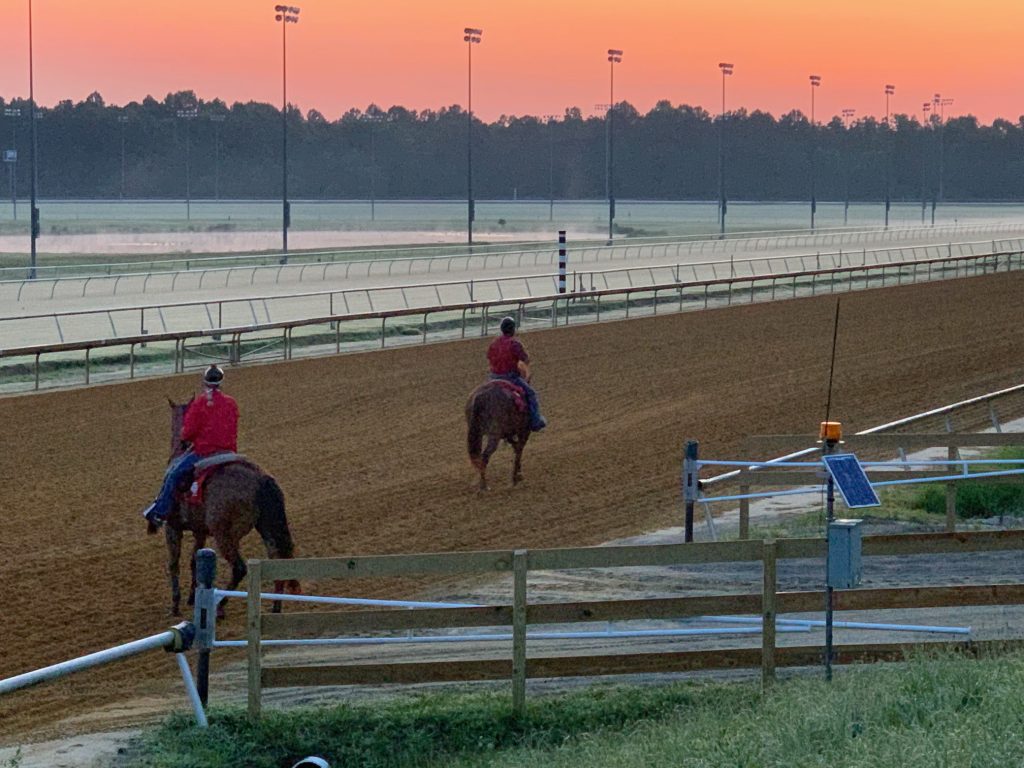
“I’m trying to learn bits and pieces of everything,” he added. “When you watch racing as a fan, you see some of those bits and pieces. When you get into it more, you see all the avenues it takes — working hands on with the horses, working the sales, breeding. I spent five months helping foal out mares — something I never thought about doing when I was 16 or 17.”
Sausville was asked about some top highlights from his travels. “Arlington was great,” he replied. “I went to the Million and had an amazing time. Saratoga is my home and I sometimes get spoiled with it. Fairmount Park in Illinois stands out. I was there on a Saturday night when they had an 8:30 PM post time. The place was packed. They ran for lower purses but the crowds were jammed in along the rail. Same with Rillito,” he continued. “They didn’t run for a lot of purse money there. Maiden special weight races went for $1,000. But when the horses came down the stretch, people were three- and four-deep at the rail screaming. At every track, there is an experience that separates each one from the other.”
Sausville estimates he has visited between 55 and 57 closed racetracks. “There is an element about seeing a closed venue. I love seeing what is left. I love the history of racing. It’s what drew me into visiting. I went to Alabama and visited the Birmingham Turf Club. It was a mecca at one time, but just never made it. To see it was amazing. It’s gorgeous to see what they built it for. They had been running greyhounds most recently but aren’t any more since the pandemic hit. To see that element of the past is just really exciting to feel it and experience it.”
Garden State Park, Great Lakes Downs and Pinnacle are some of the tracks he has been to that did not survive. “At Detroit Race Course, there is nothing left,” he said. “It’s just a couple of warehouses now. In other places, you can still see the grandstand or the track. Everybody in the industry started somewhere and has experiences. Take a place like Woodlands in Kansas City. Nobody knows what’s going on with it now but there are 10 people that started their careers there and had some of the best times of their professional lives there. I’ve heard some amazing stories about some amazing places and they are all genuine. I don’t know if I would have heard these unless people knew I had that level of interest.”
Before arriving at Colonial Downs, Sausville worked for five months at the 2,200-acre Stone Farm in Paris, Kentucky. After the Colonial meet ends, he will head back to Kentucky but instead of a farm, he’ll be based at Keeneland to help prepare for this year’s Breeders’ Cup. Working at Colonial though completes a “full circle” type experience.
“I’ve always loved watching races on TV and certain simulcast signals would catch my eye,” he recalled. “Colonial was one of them. One of my favorite horses won the 2012 Virginia Derby. I remember watching Silver Max win it upstairs at the Saratoga harness track on a small, dirty simulcast screen. Now eight years later, I get to look out at that beautiful turf course in person every day. It’s amazing to realize where I came from and where I am now.”
Colonial’s Jill Byrne could not be happier where Sausville is now. “I met Alex initially at Breeders’ Cup last year where he was working for Dora Delgado in the racing department. I knew if he was Dora-approved he had to have all the necessary qualities for a future in racing operations! Then I got to see Alex in action at the RTIP Symposium and it was even more obvious that he has the drive, knowledge and passion to learn everything about the racing industry and be a positive addition to our team at Colonial Downs. Alex is going to be a major force in horse racing’s future.”


